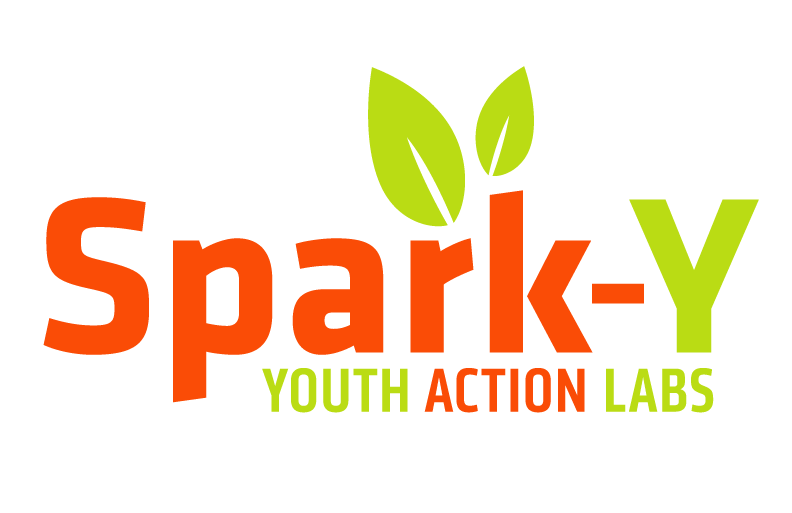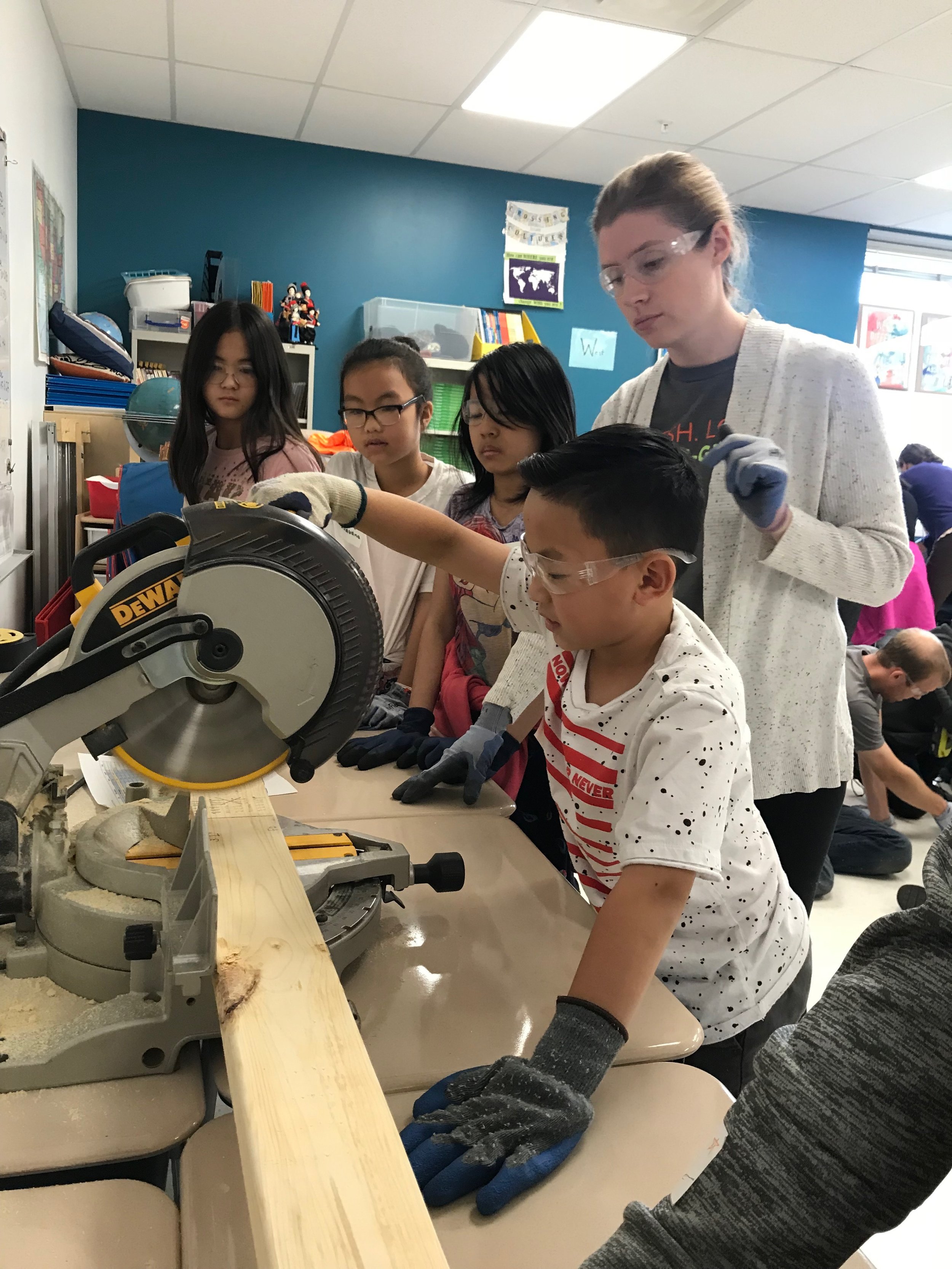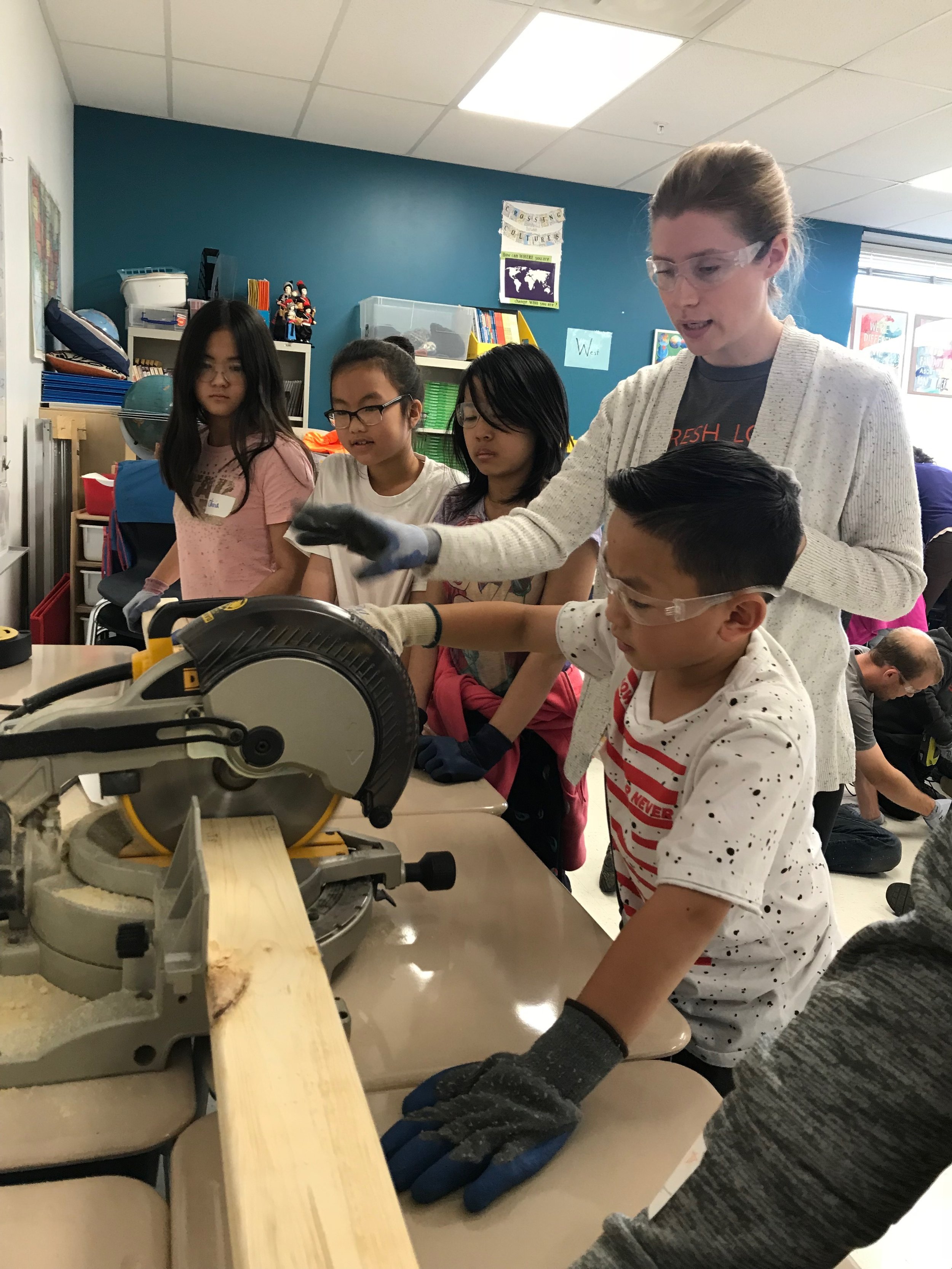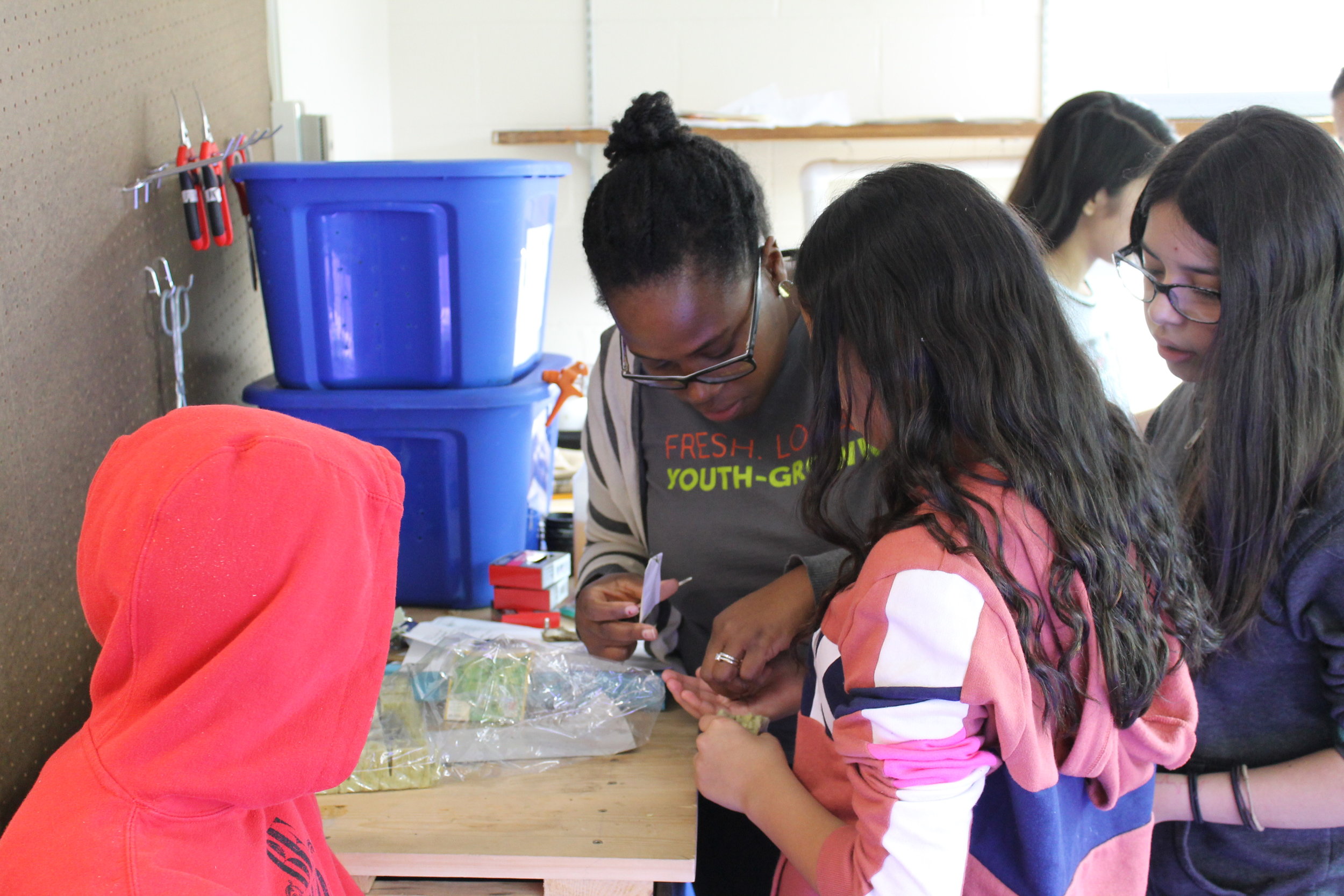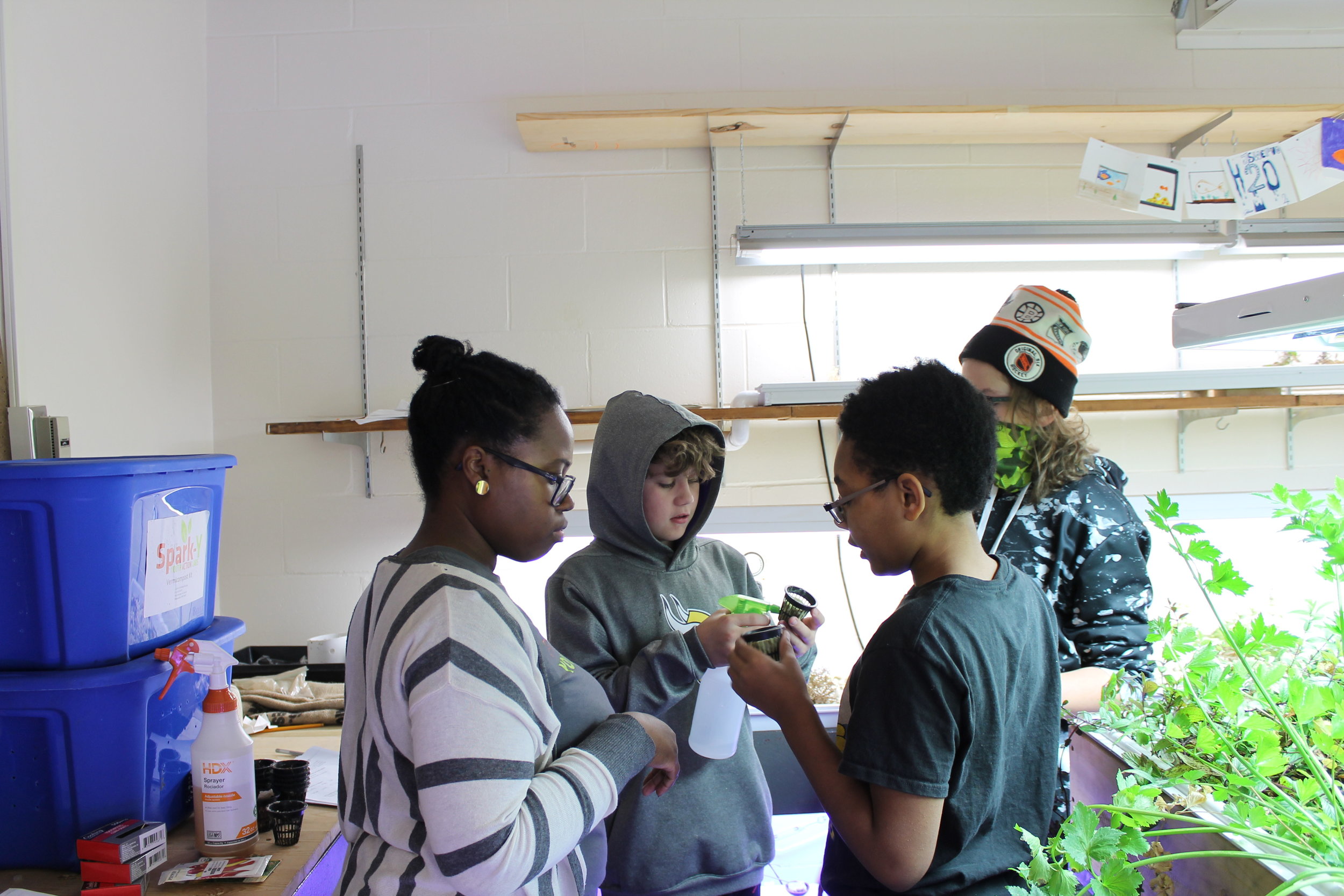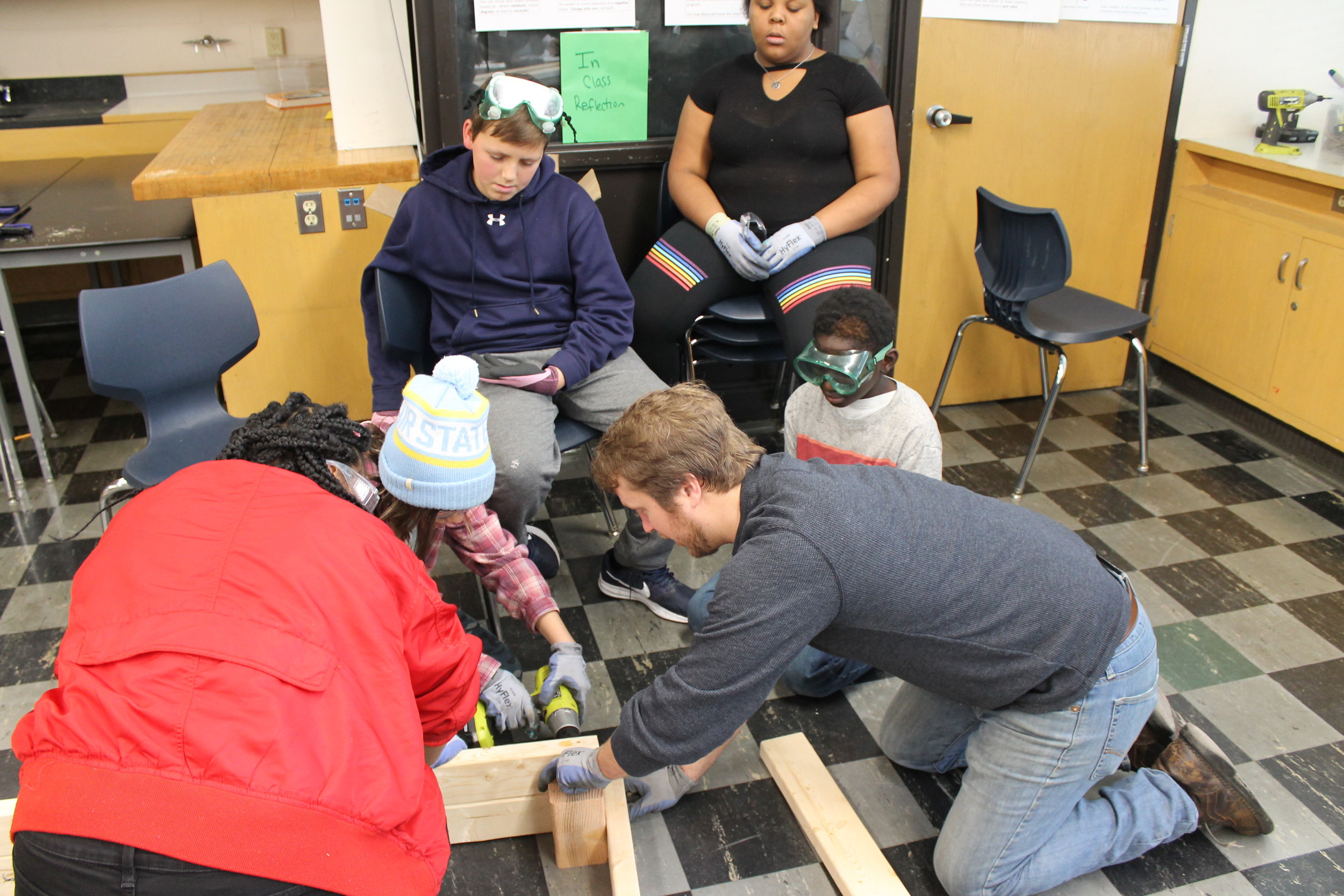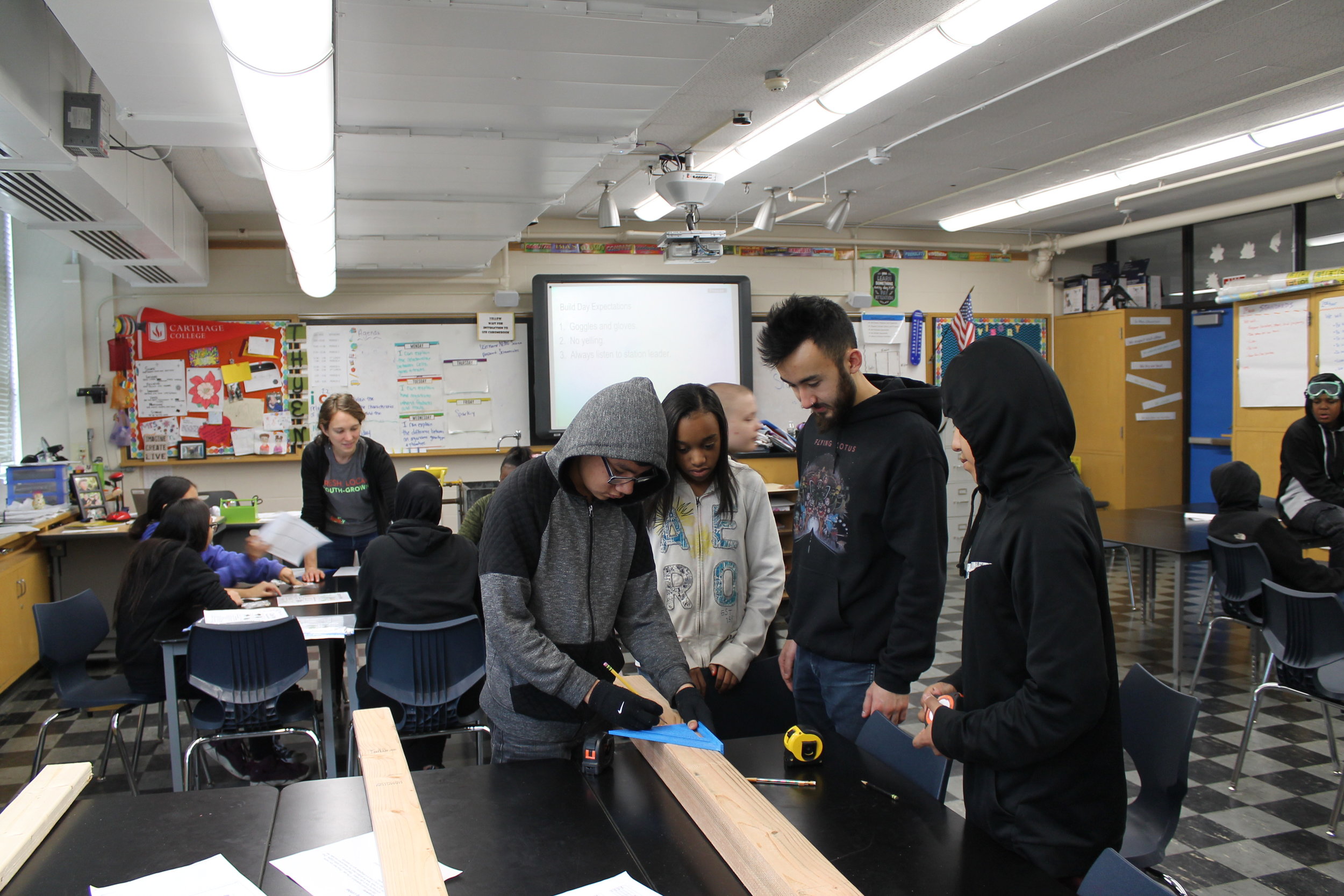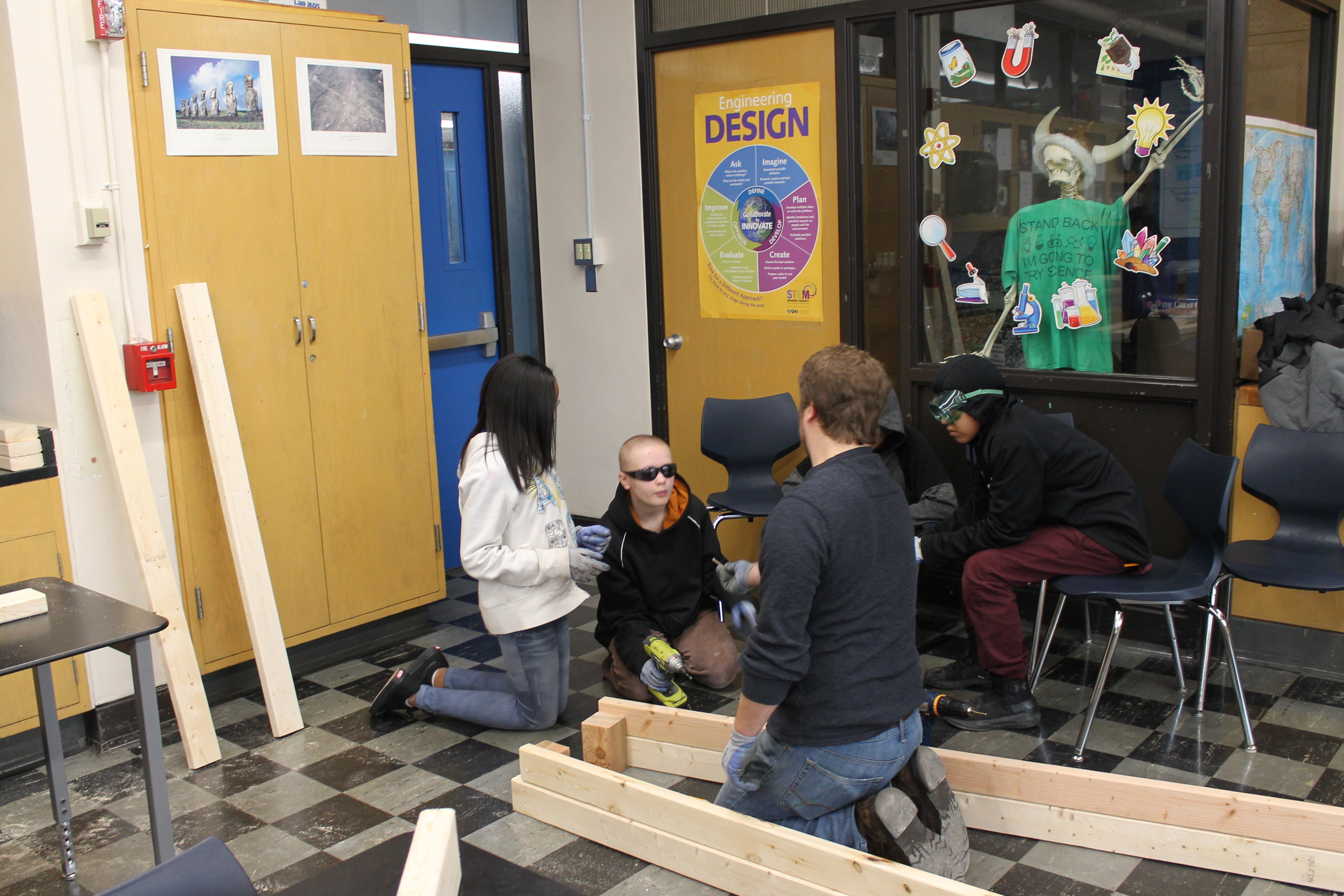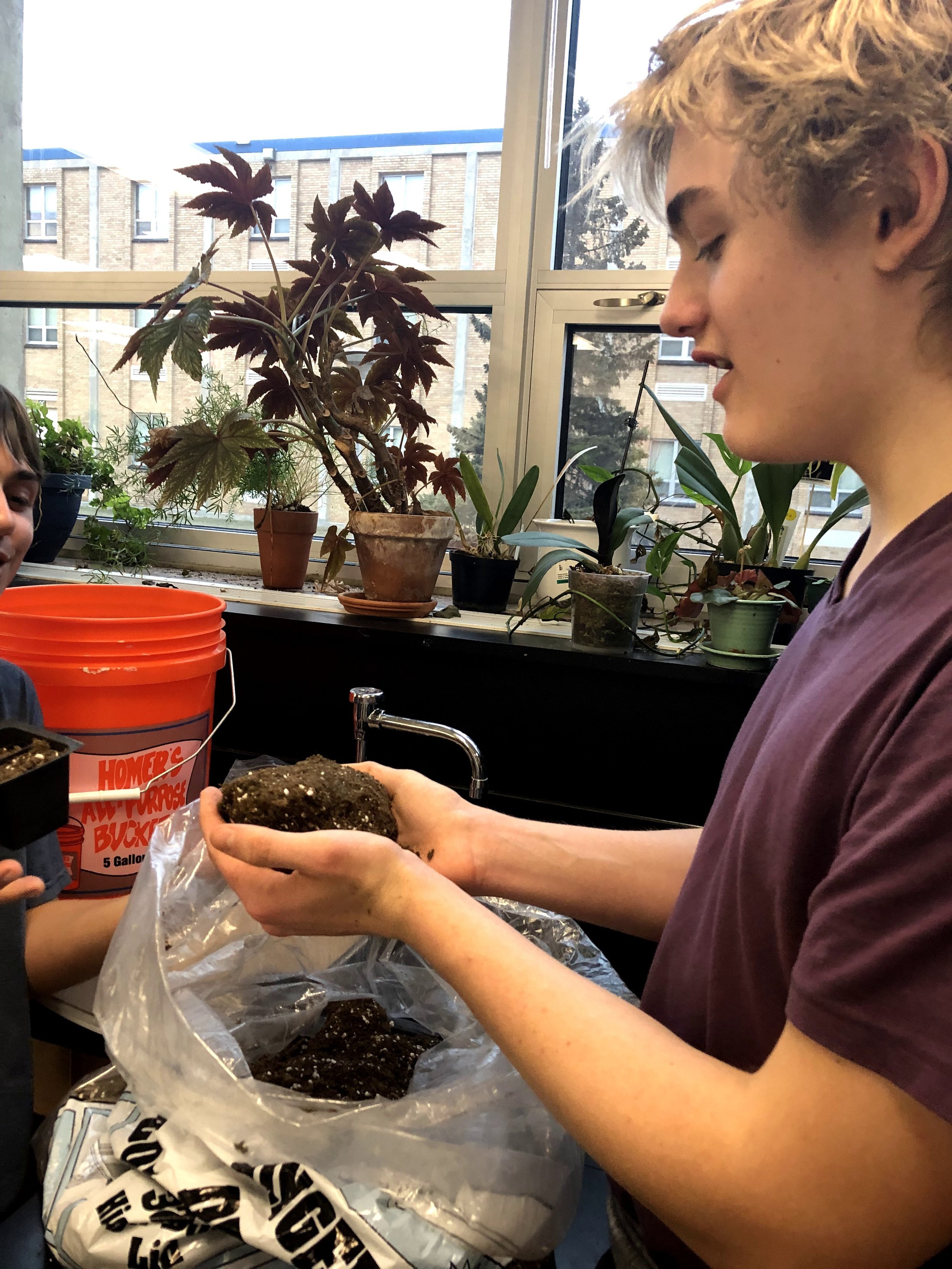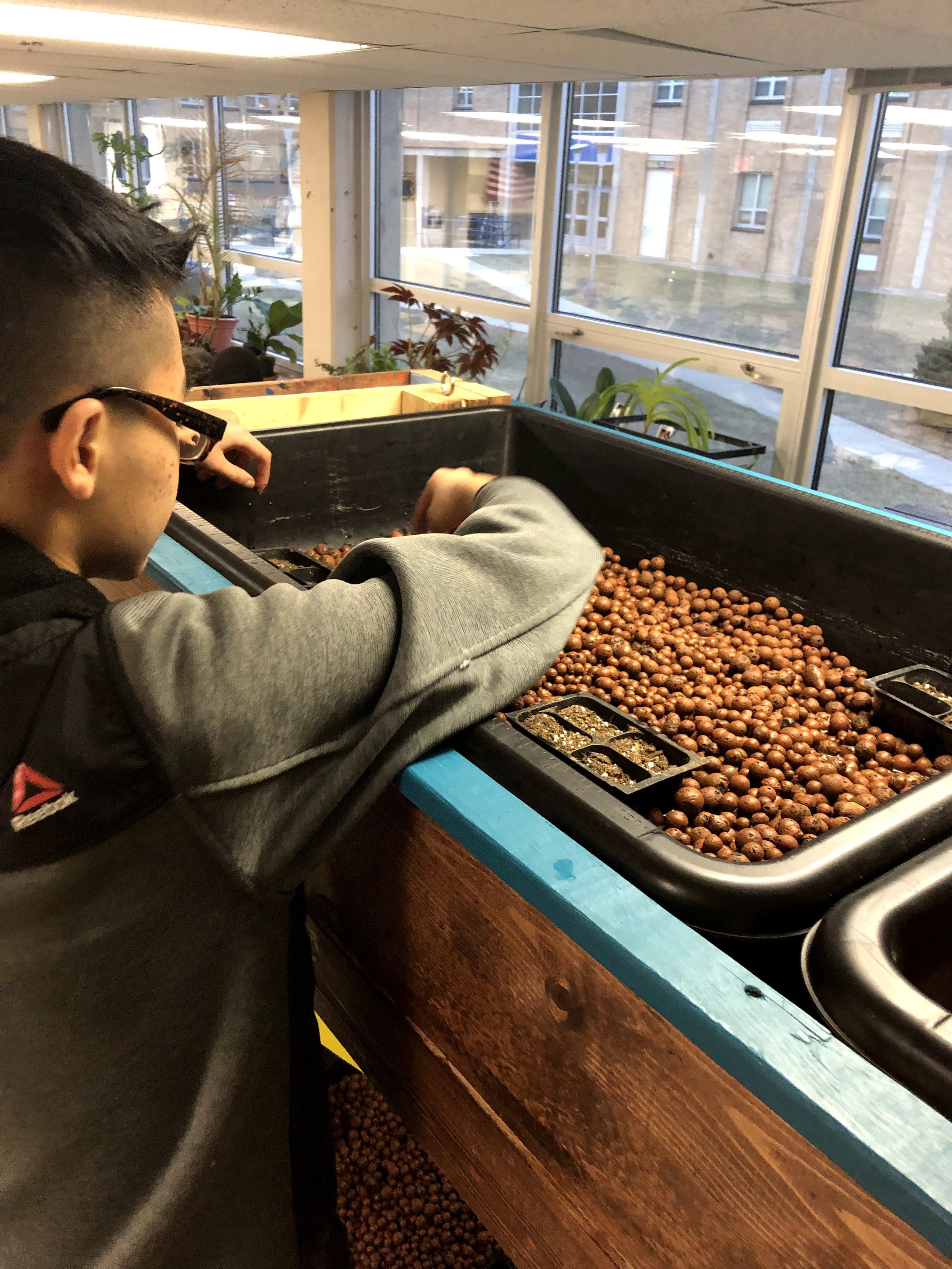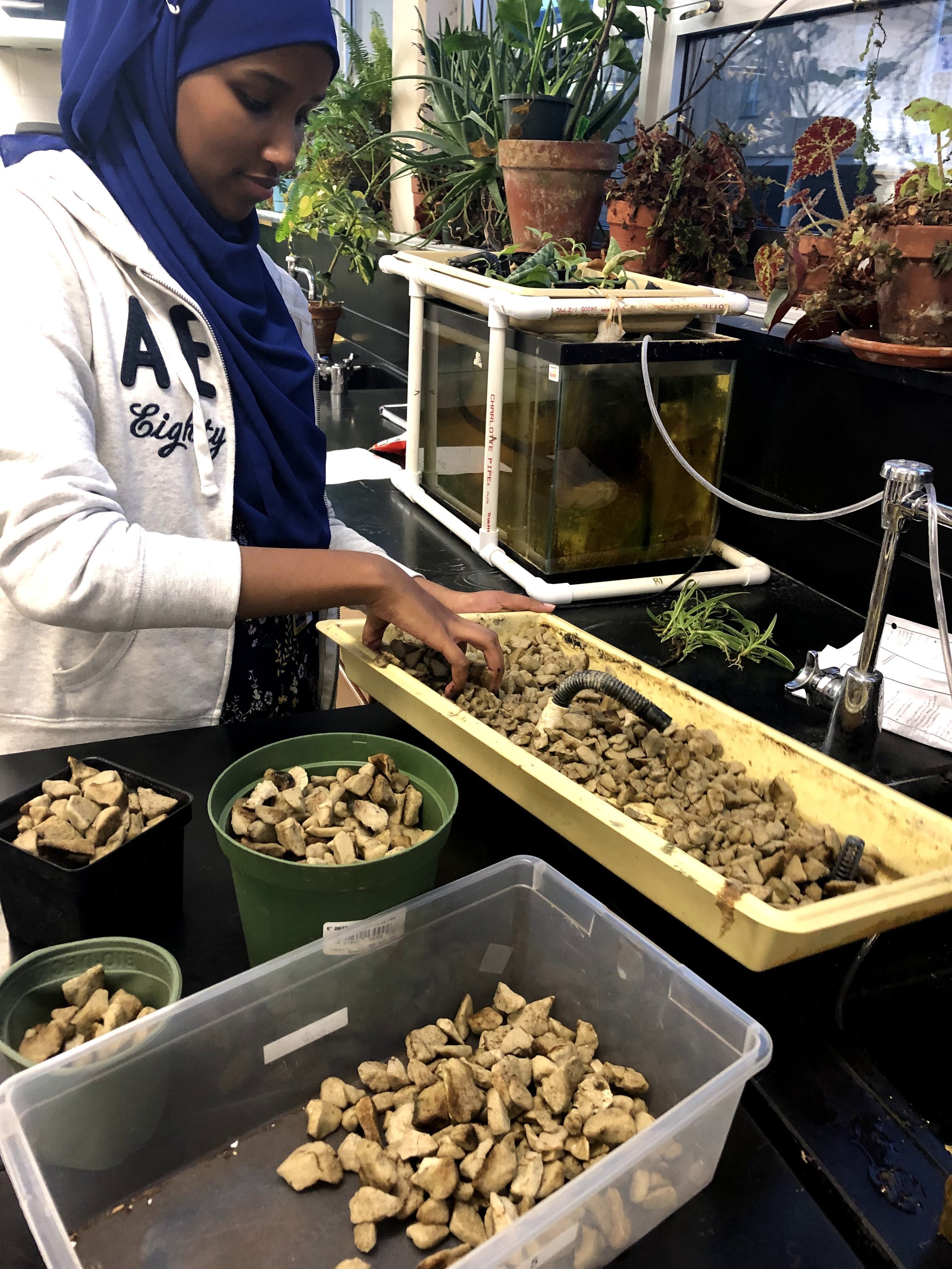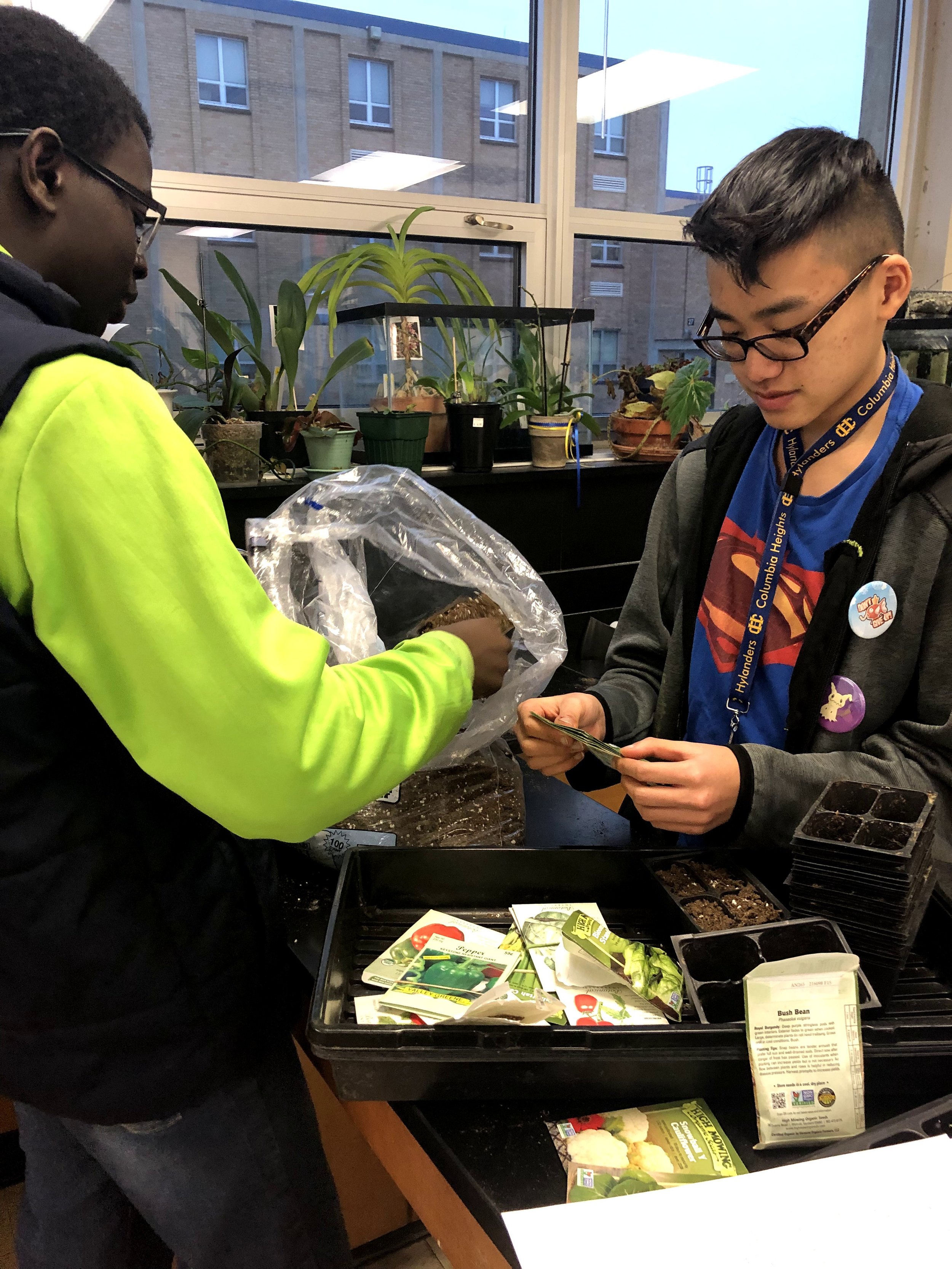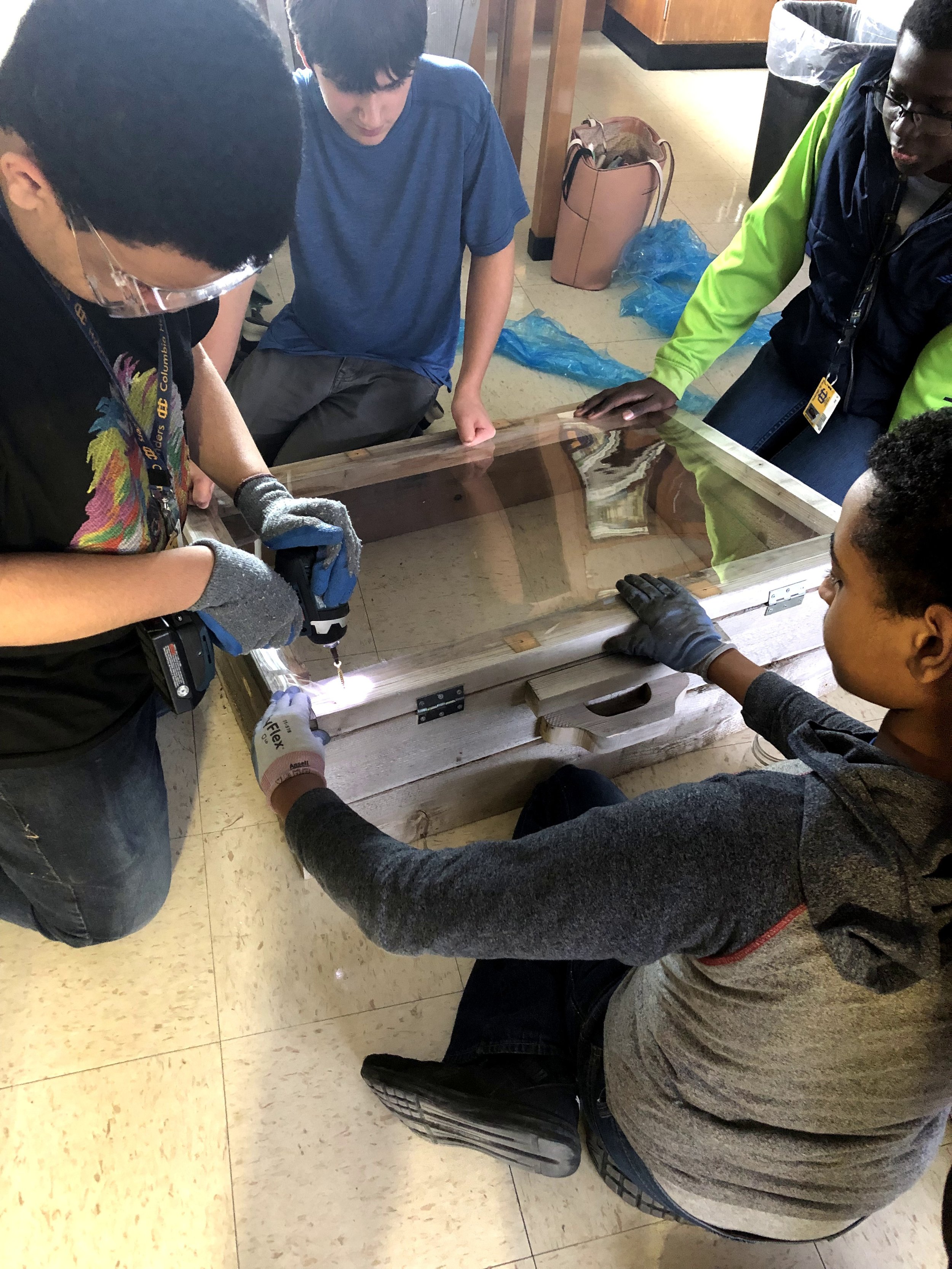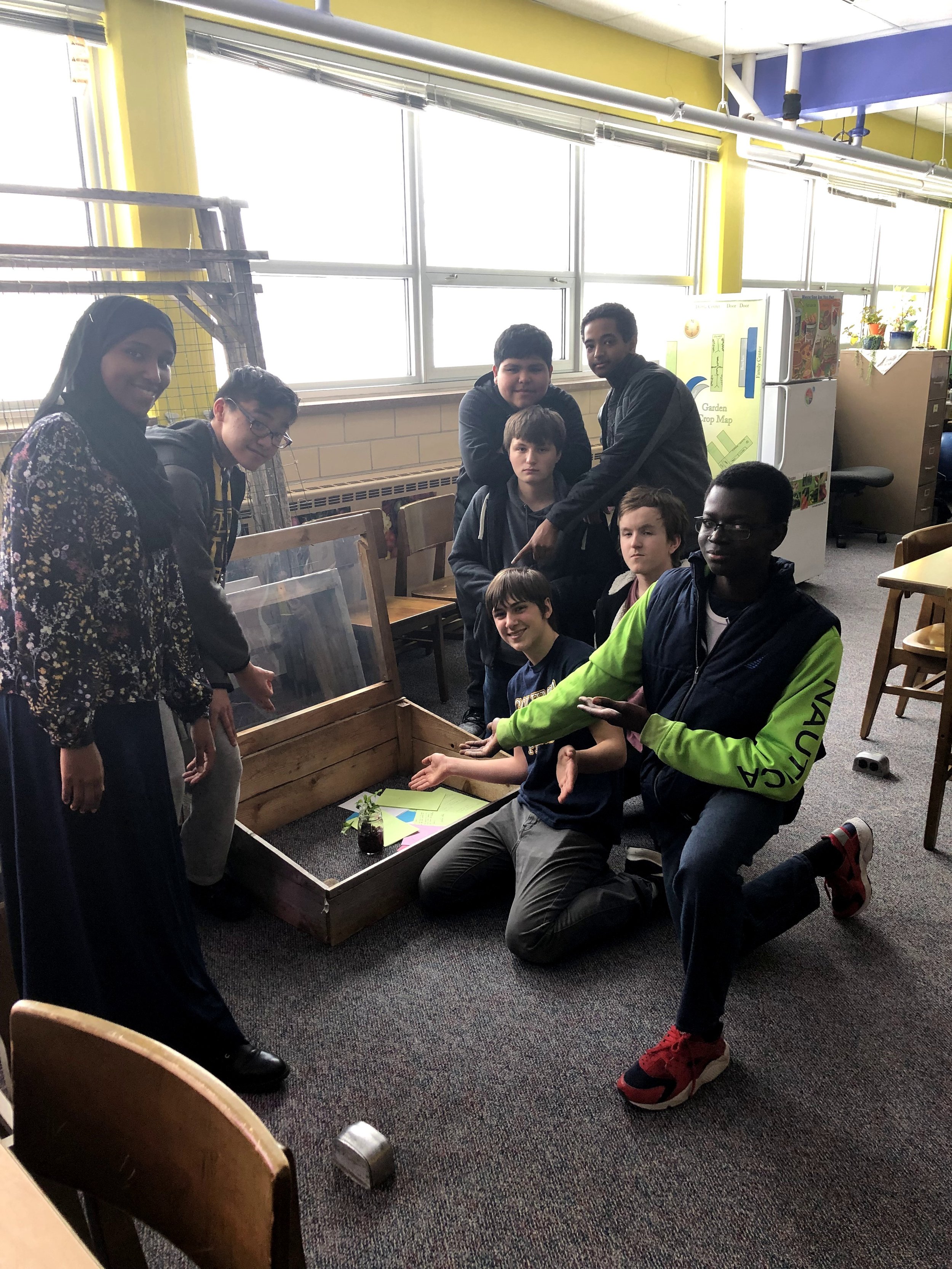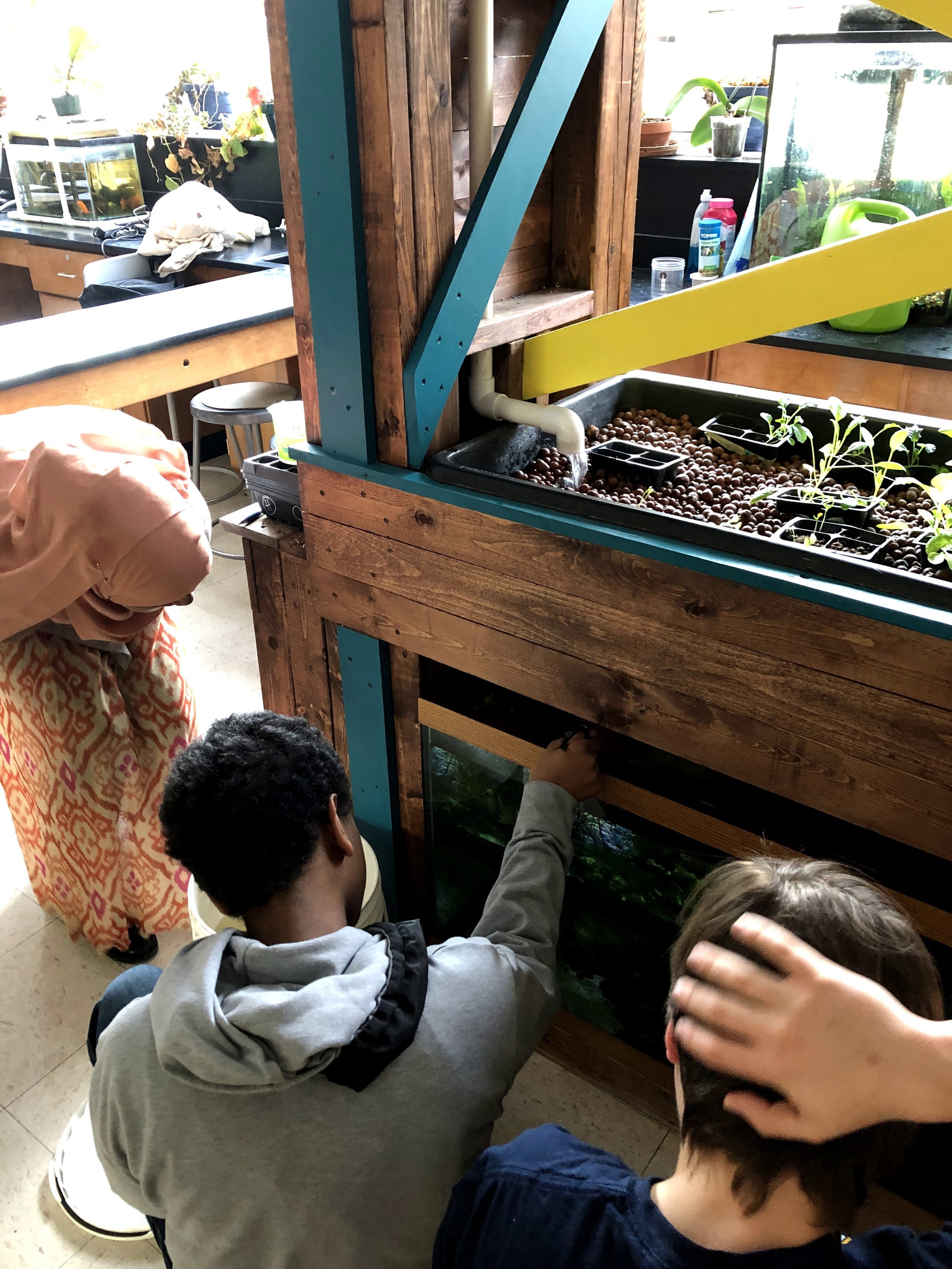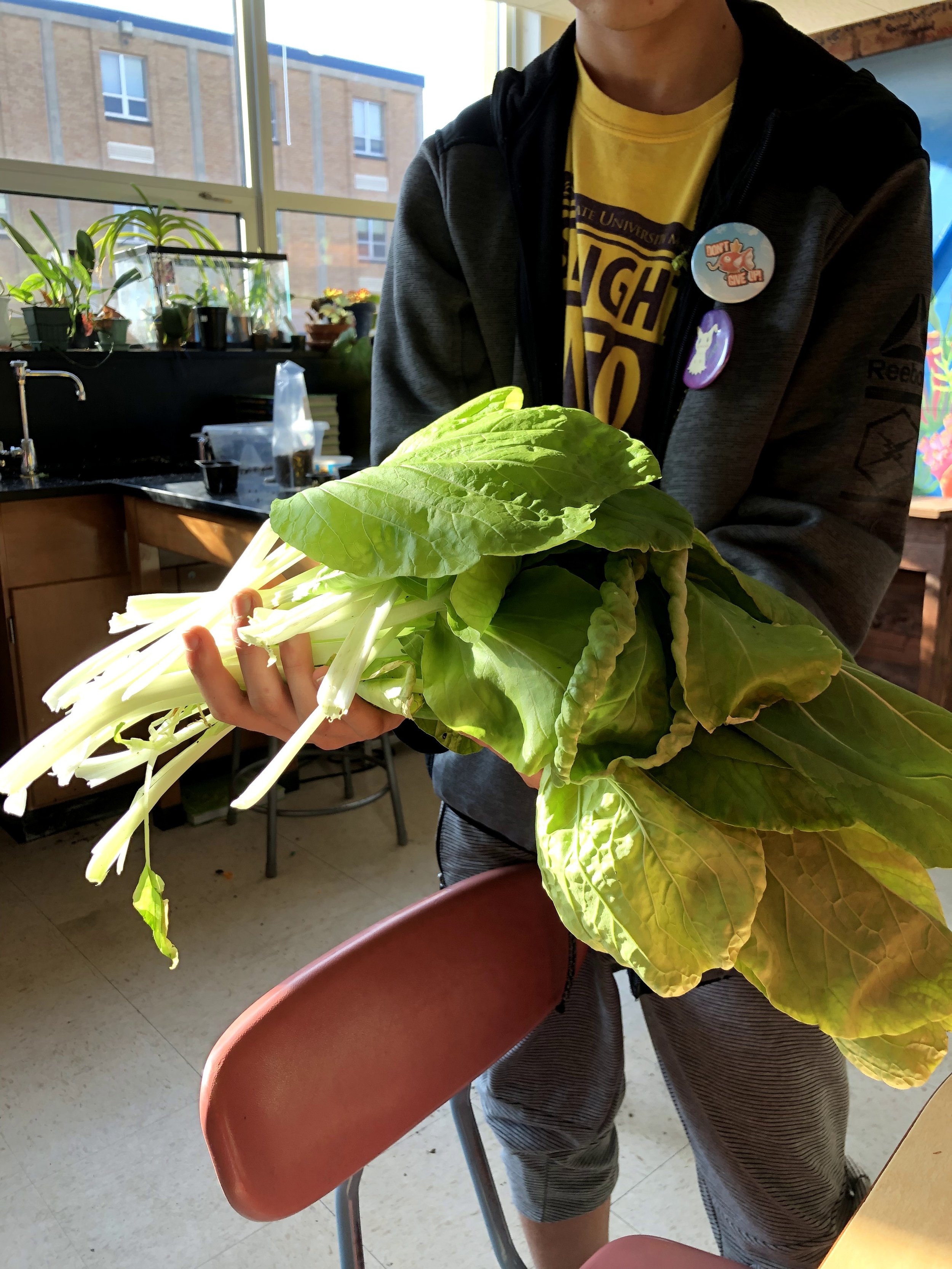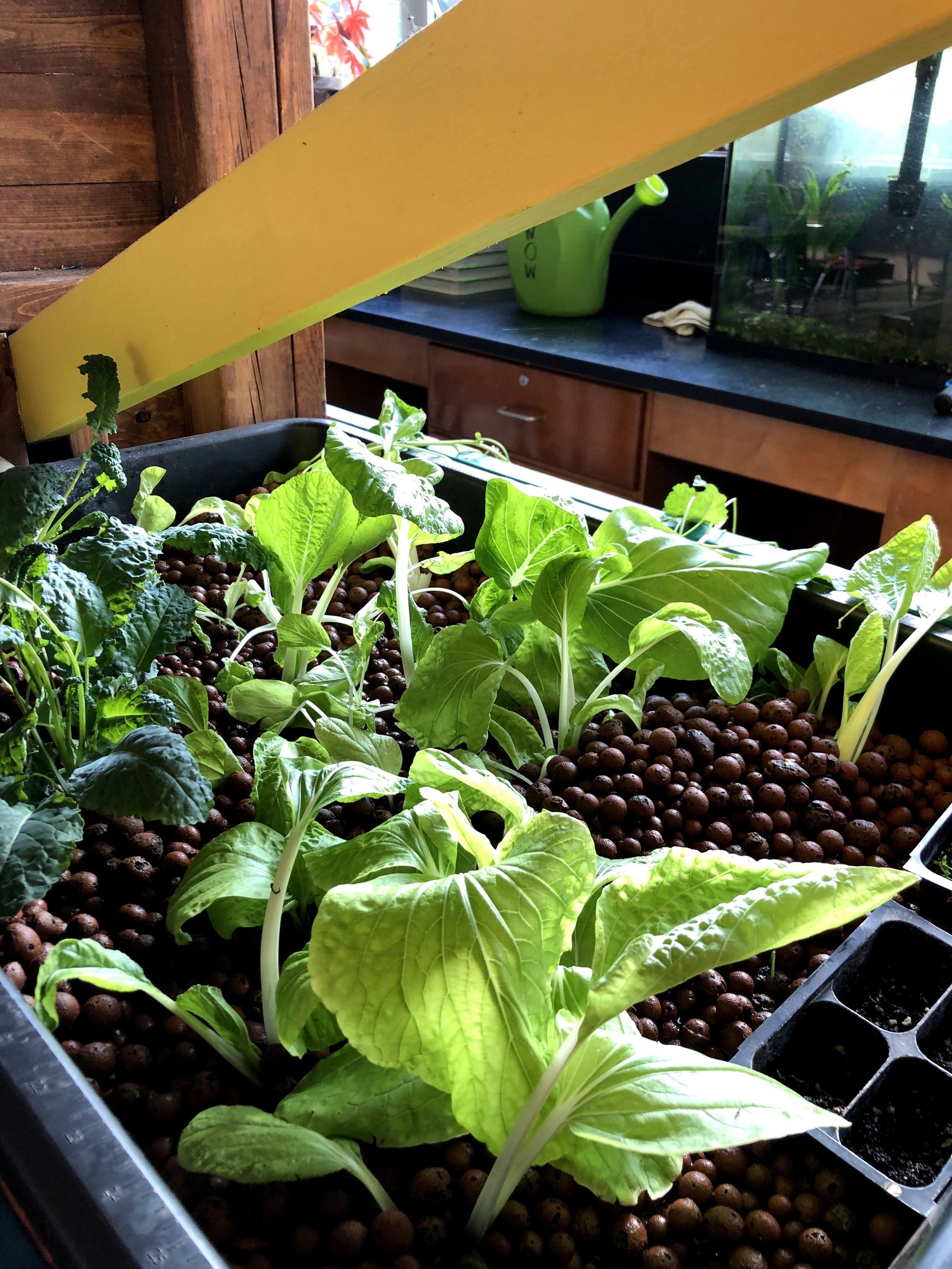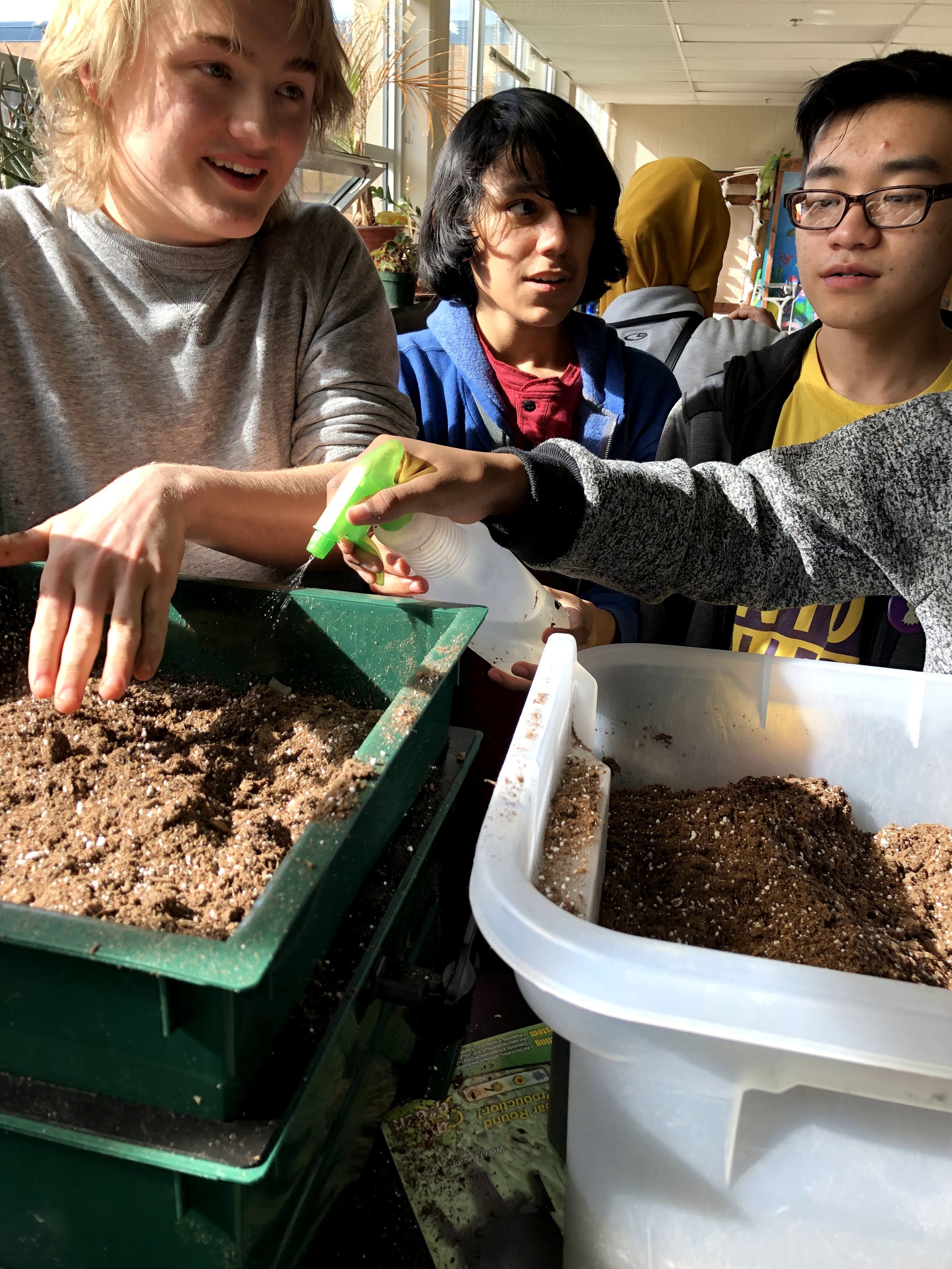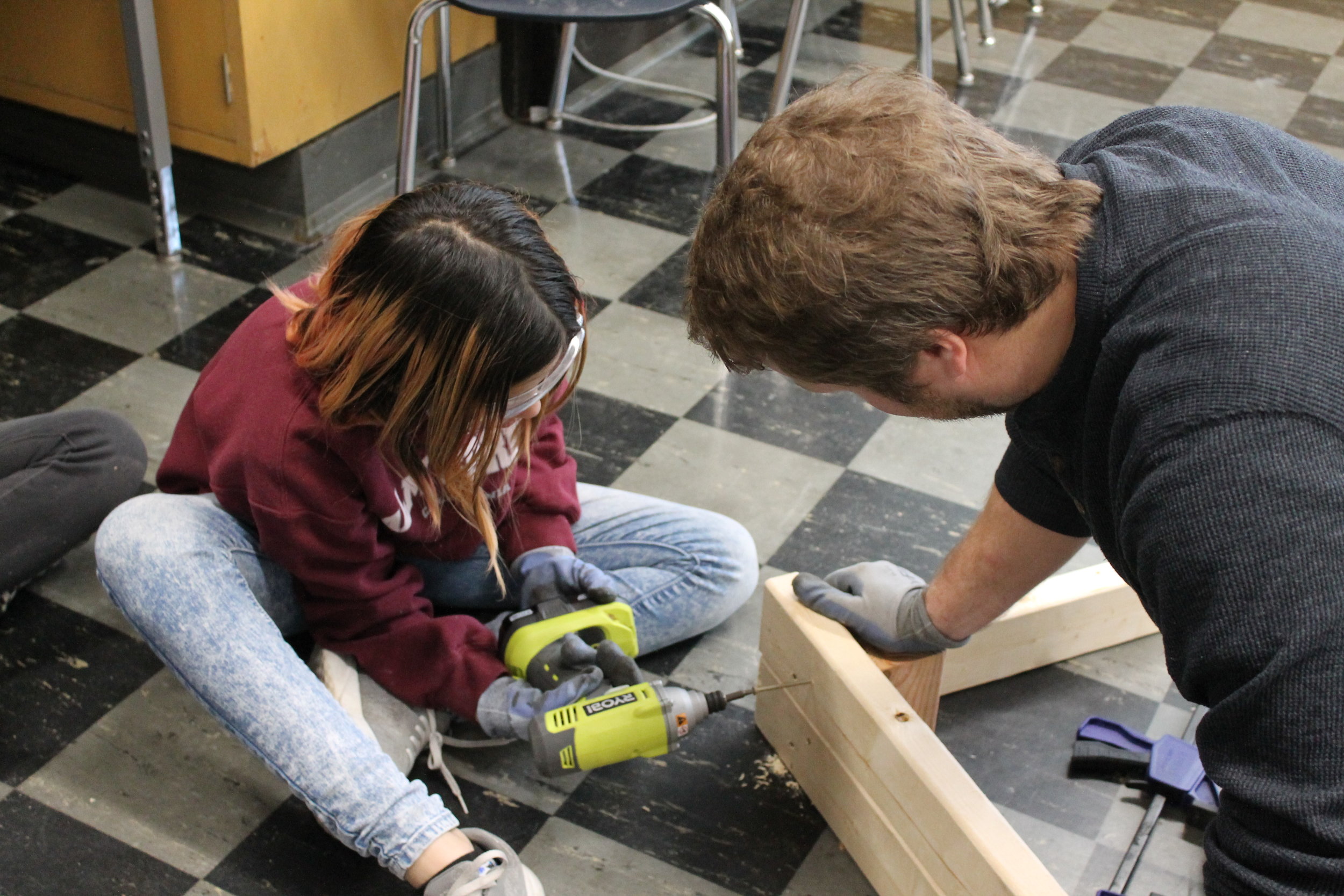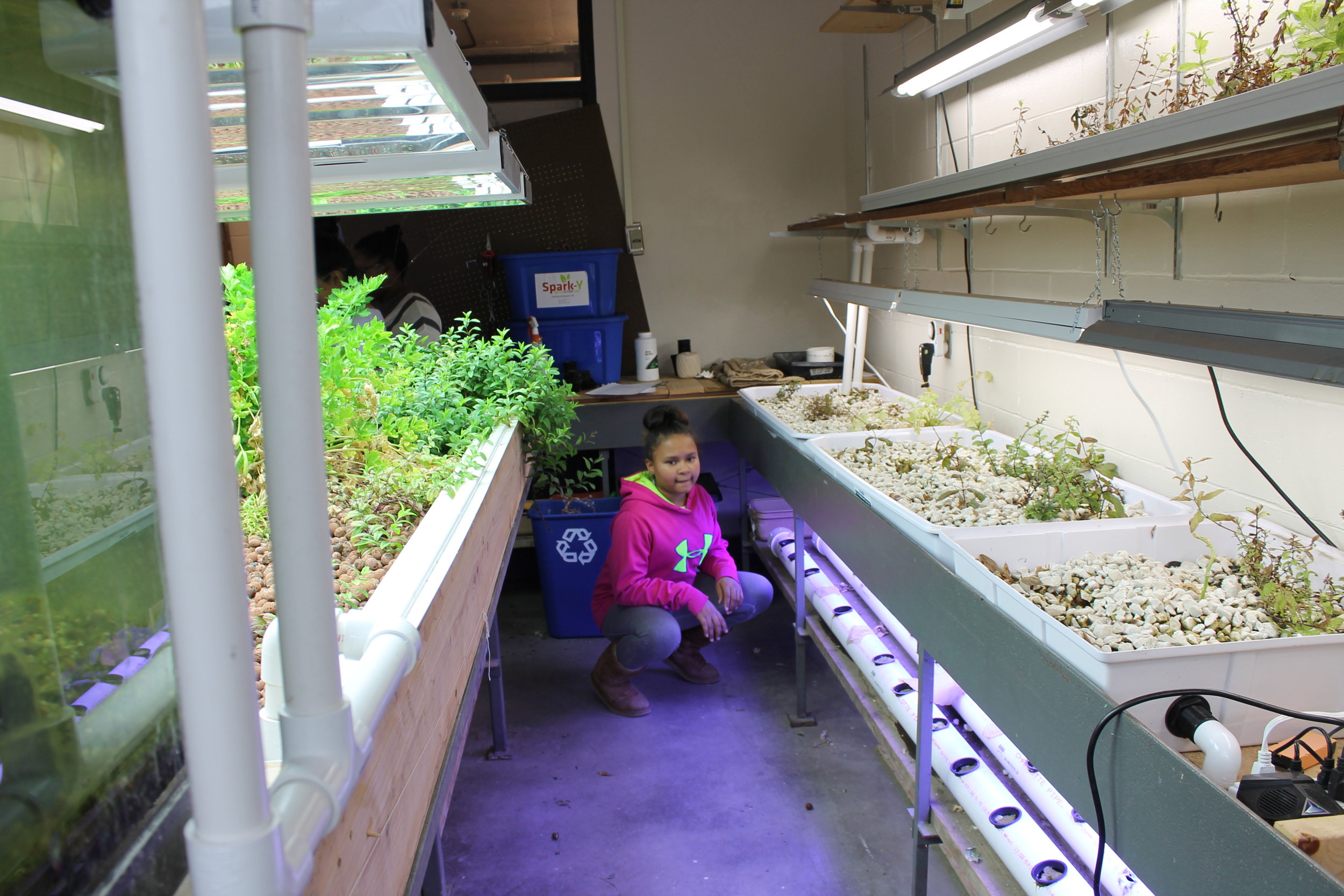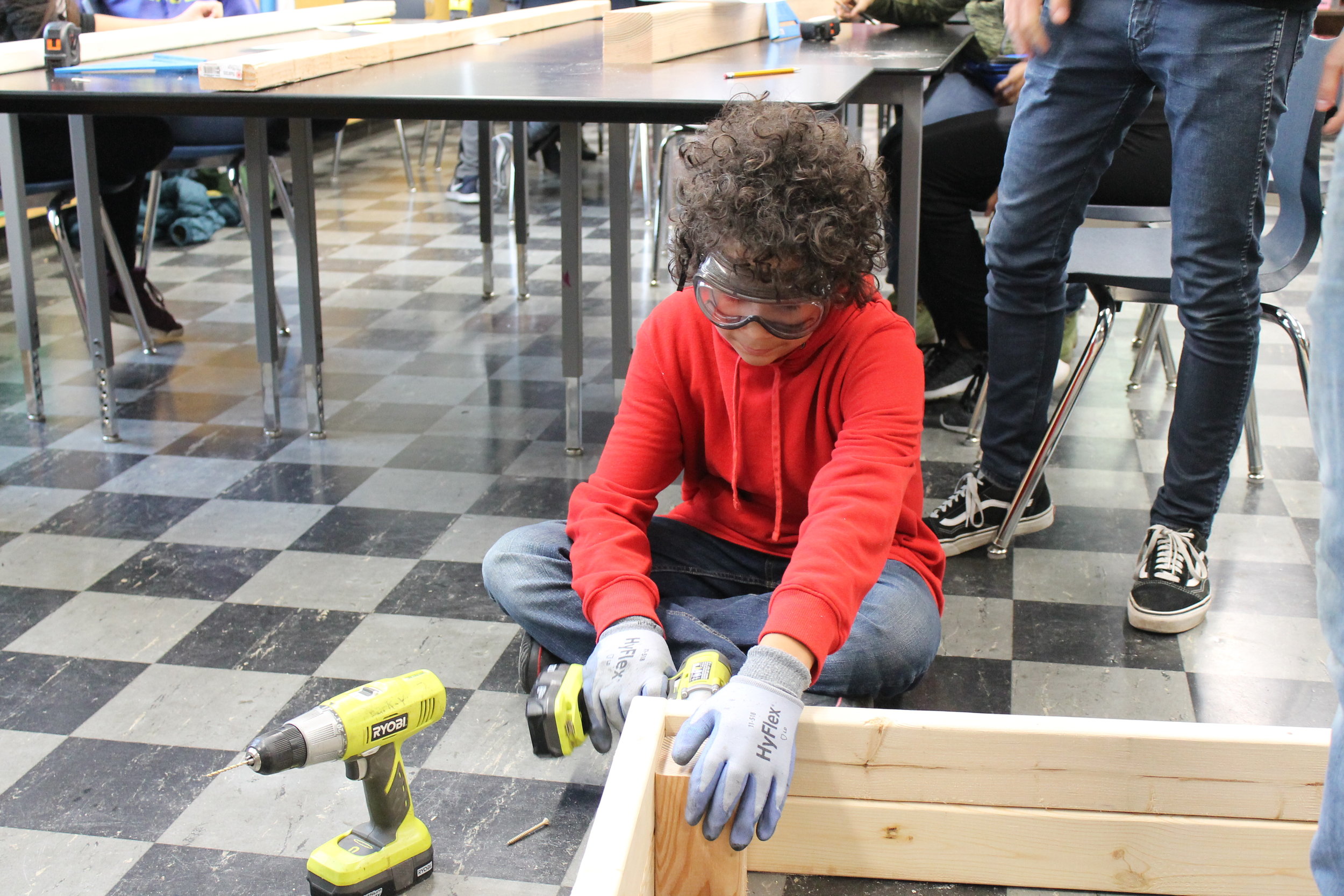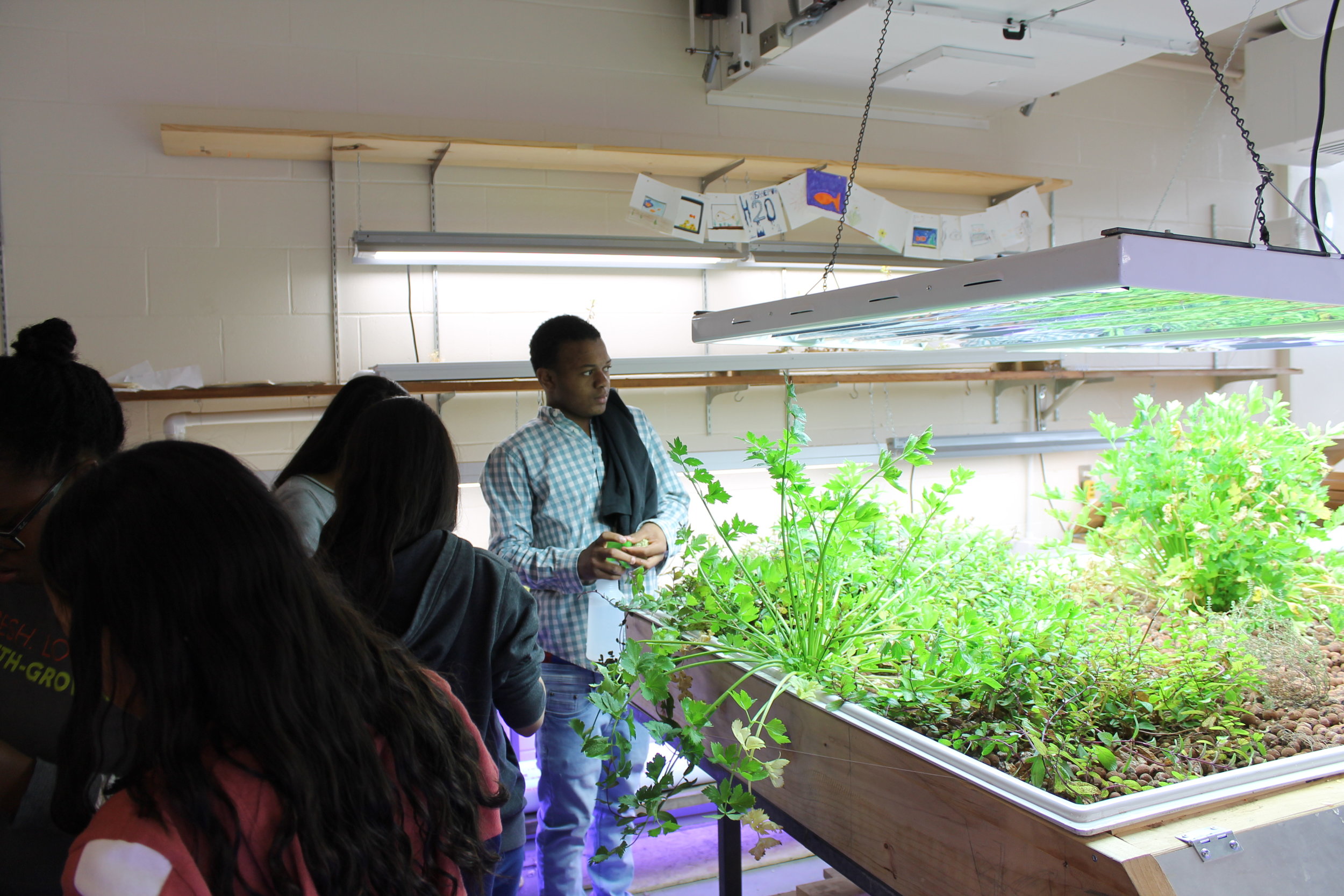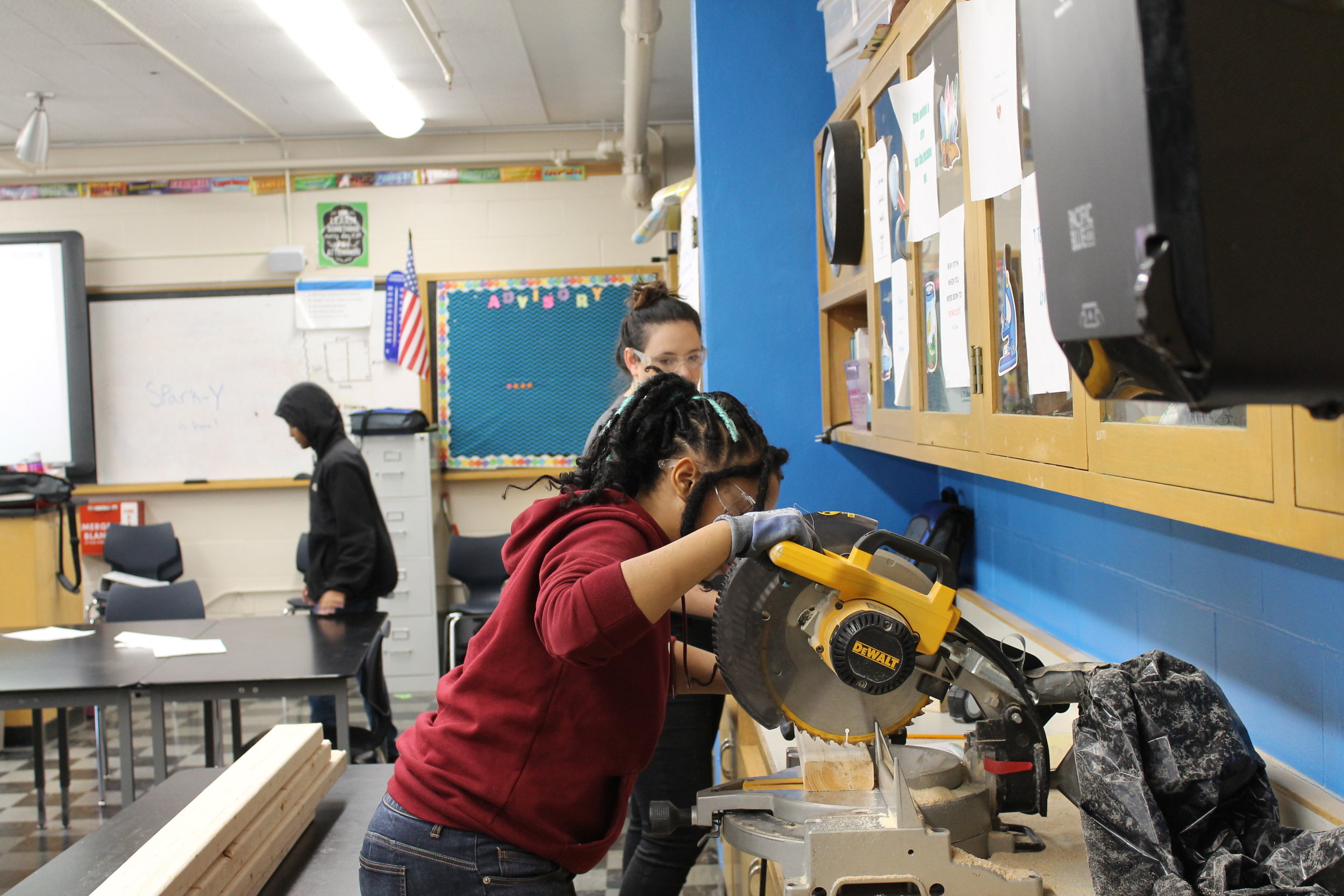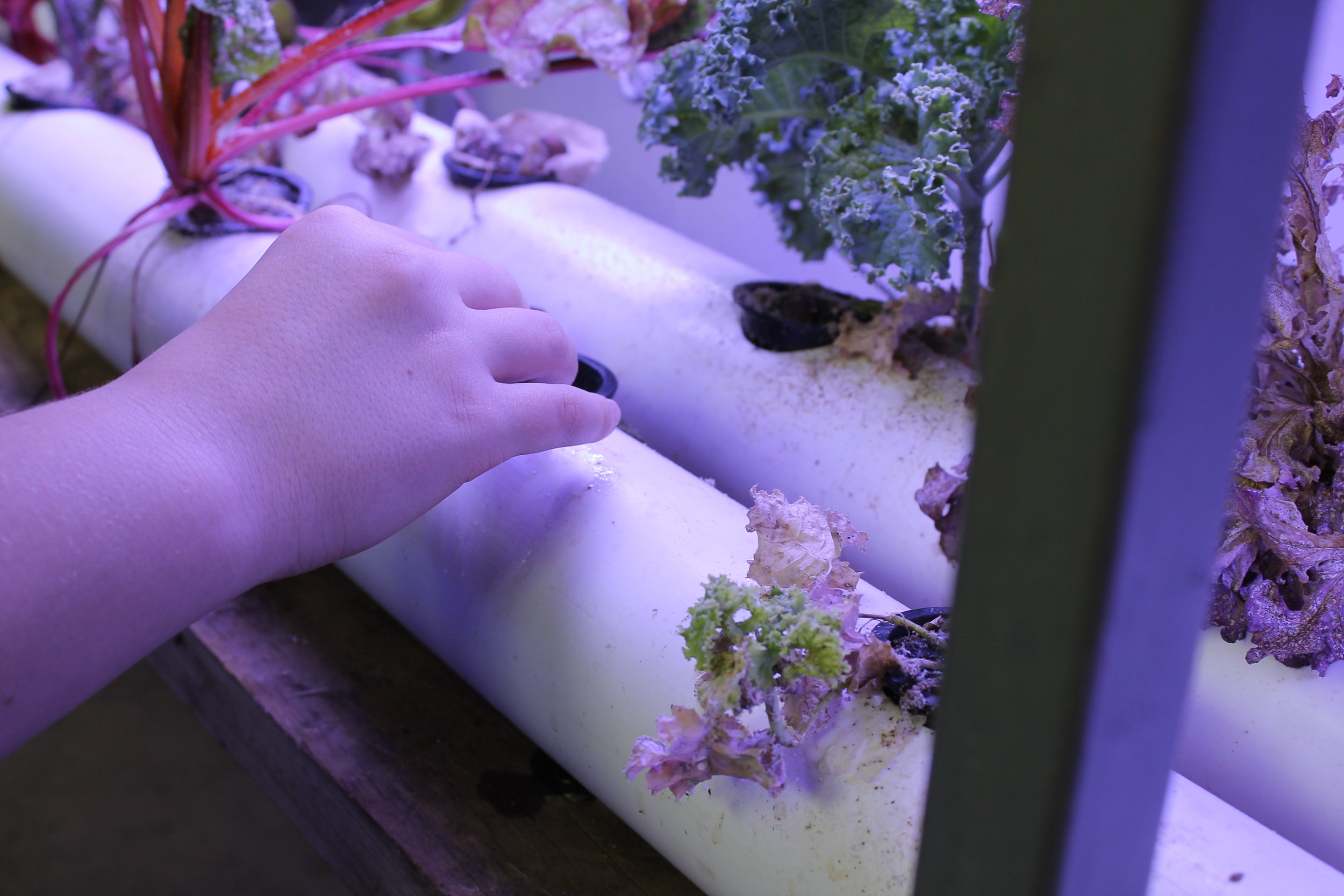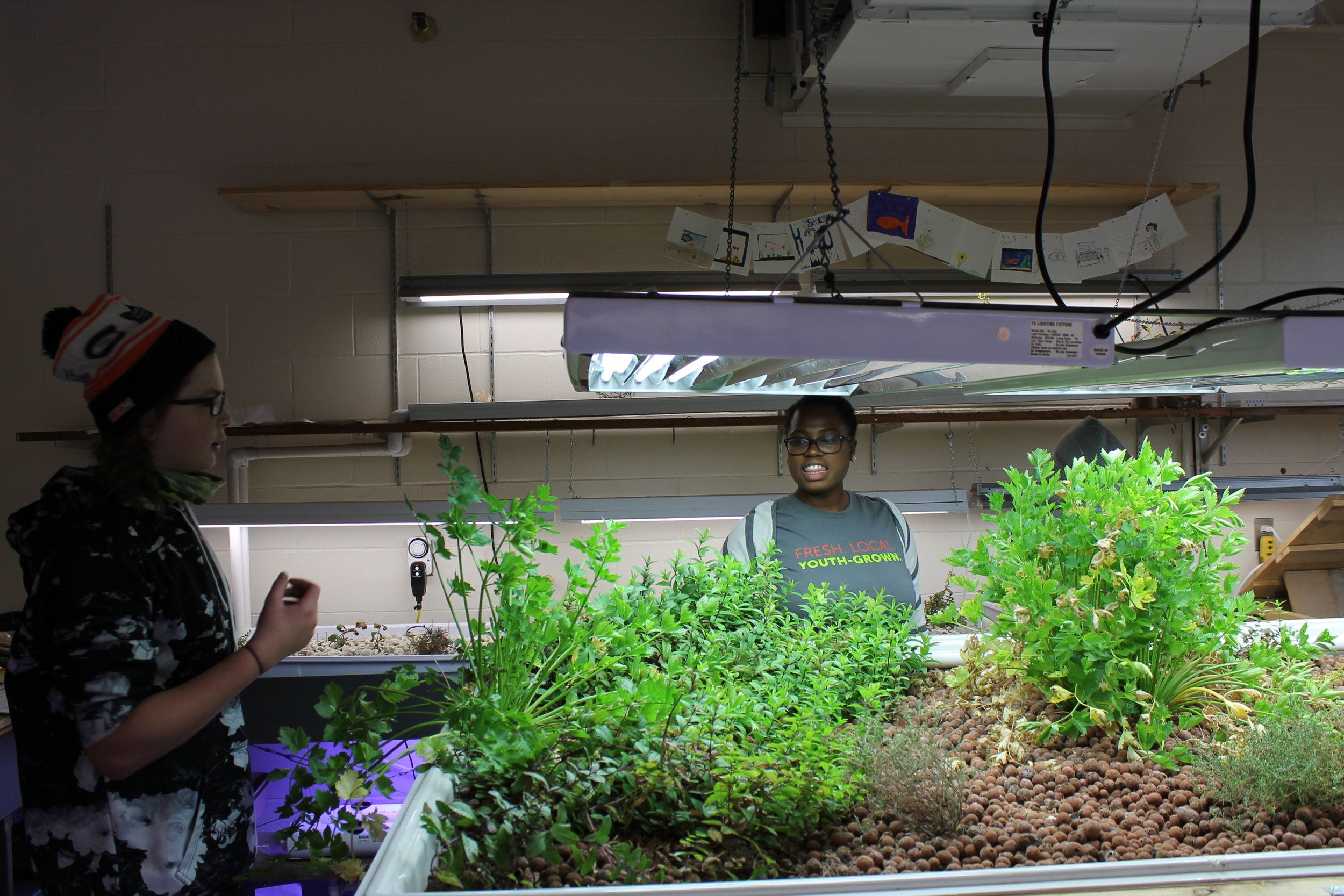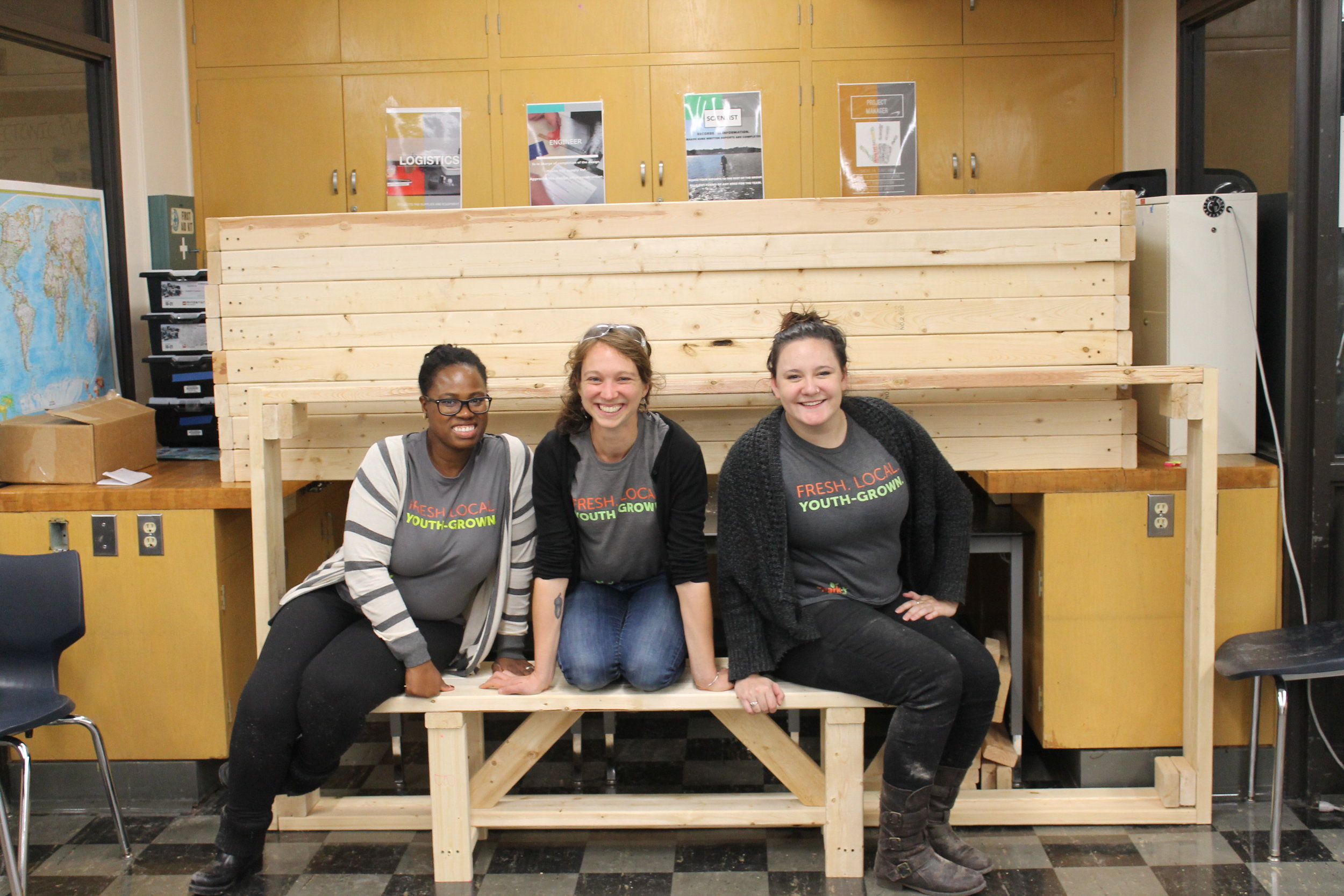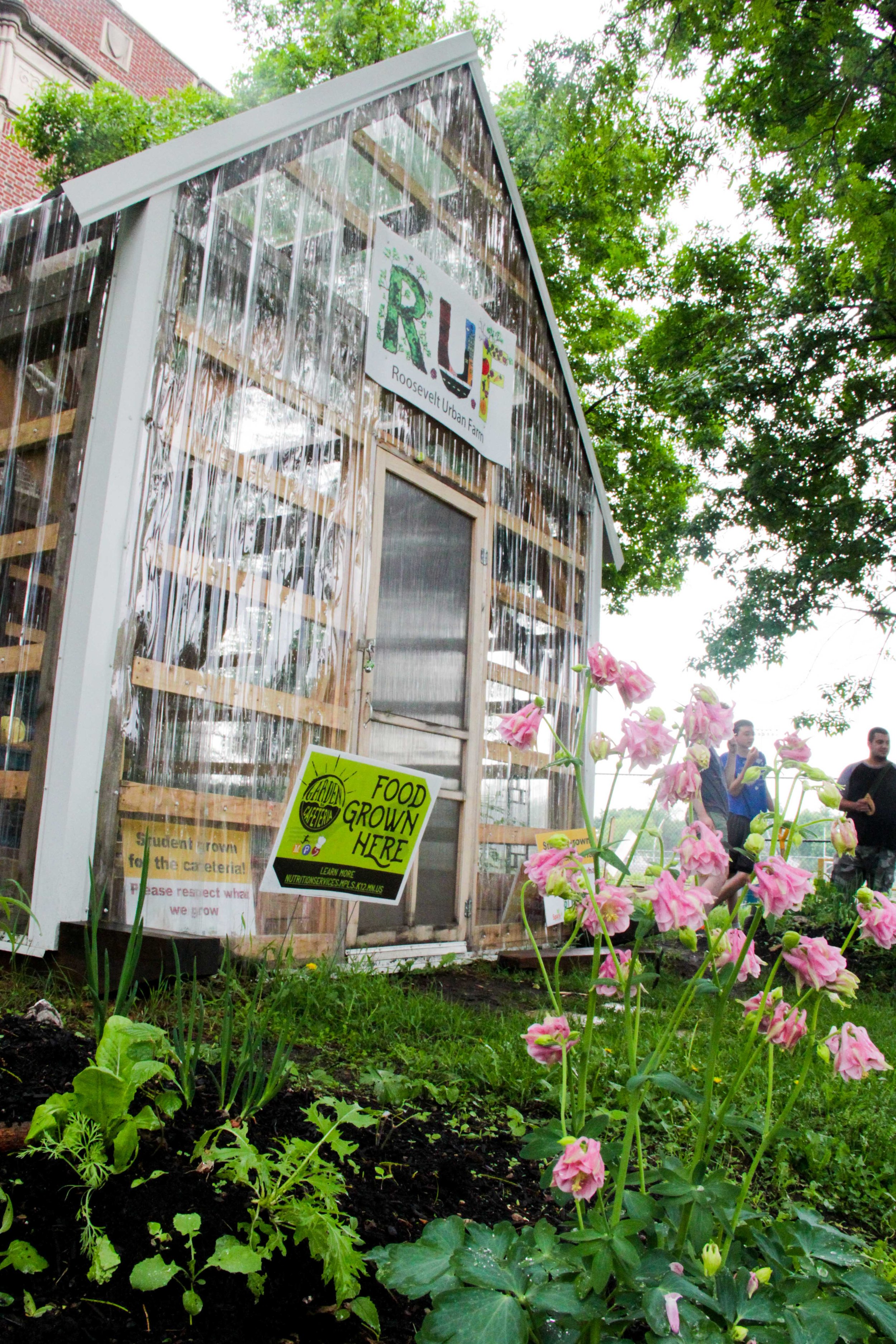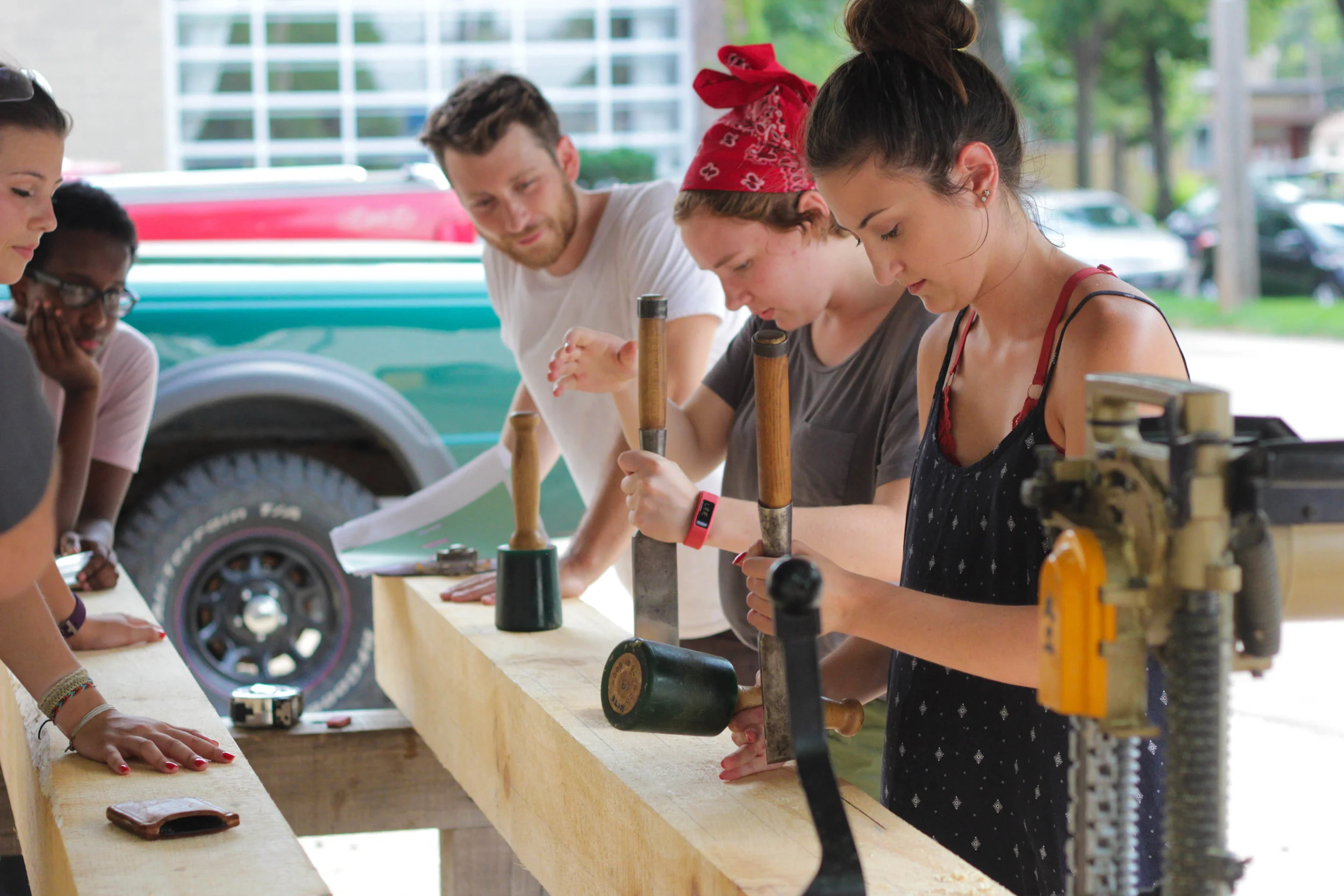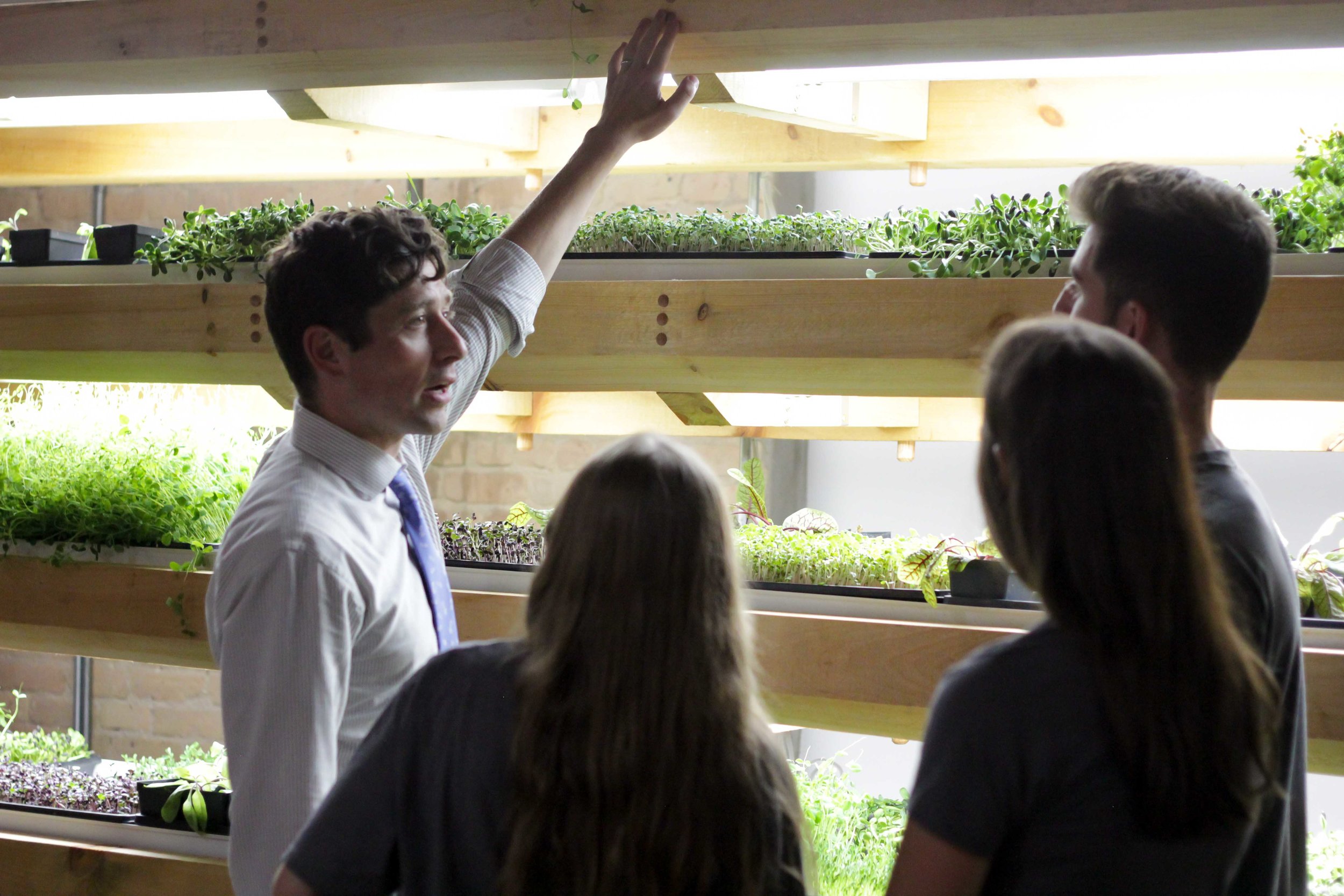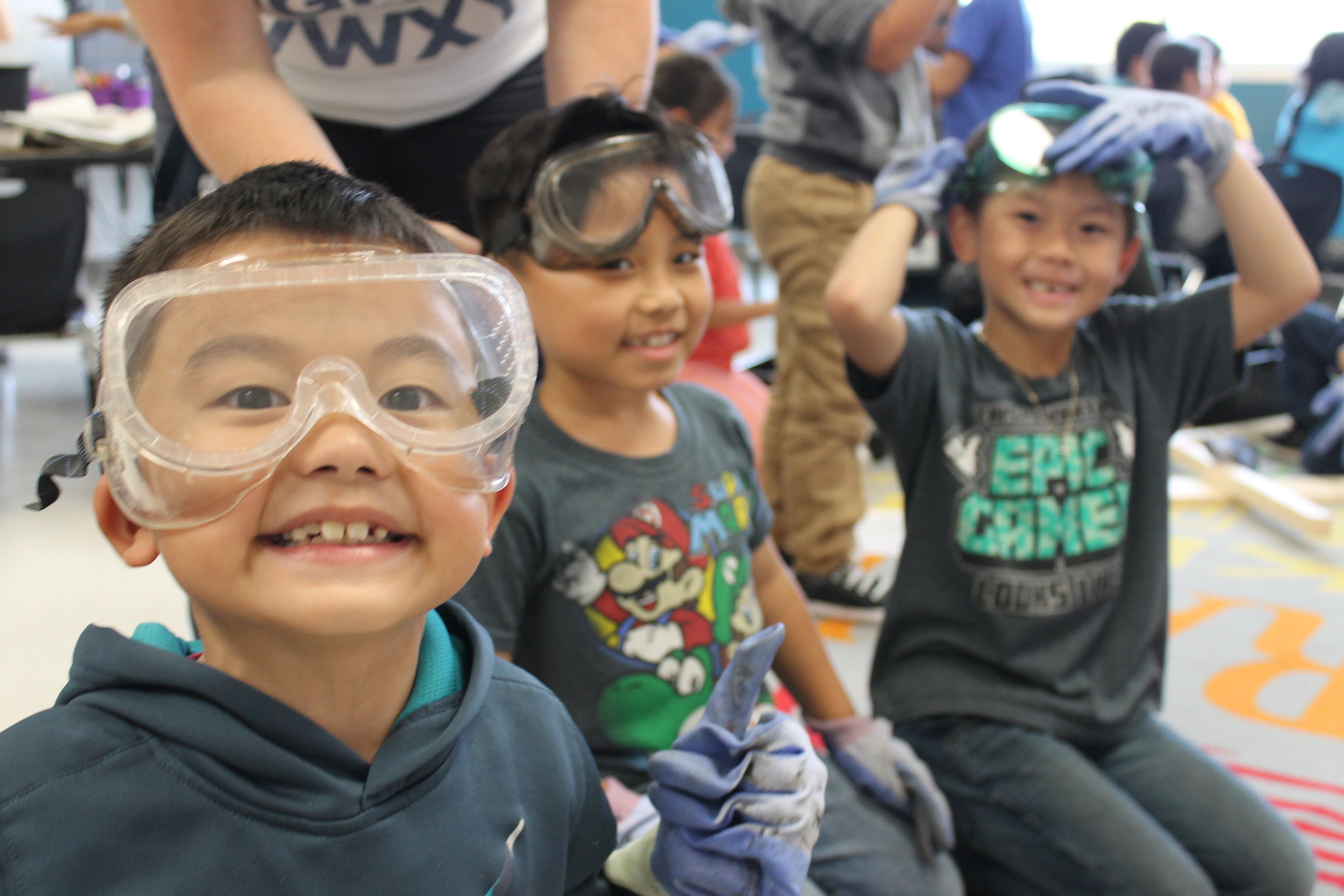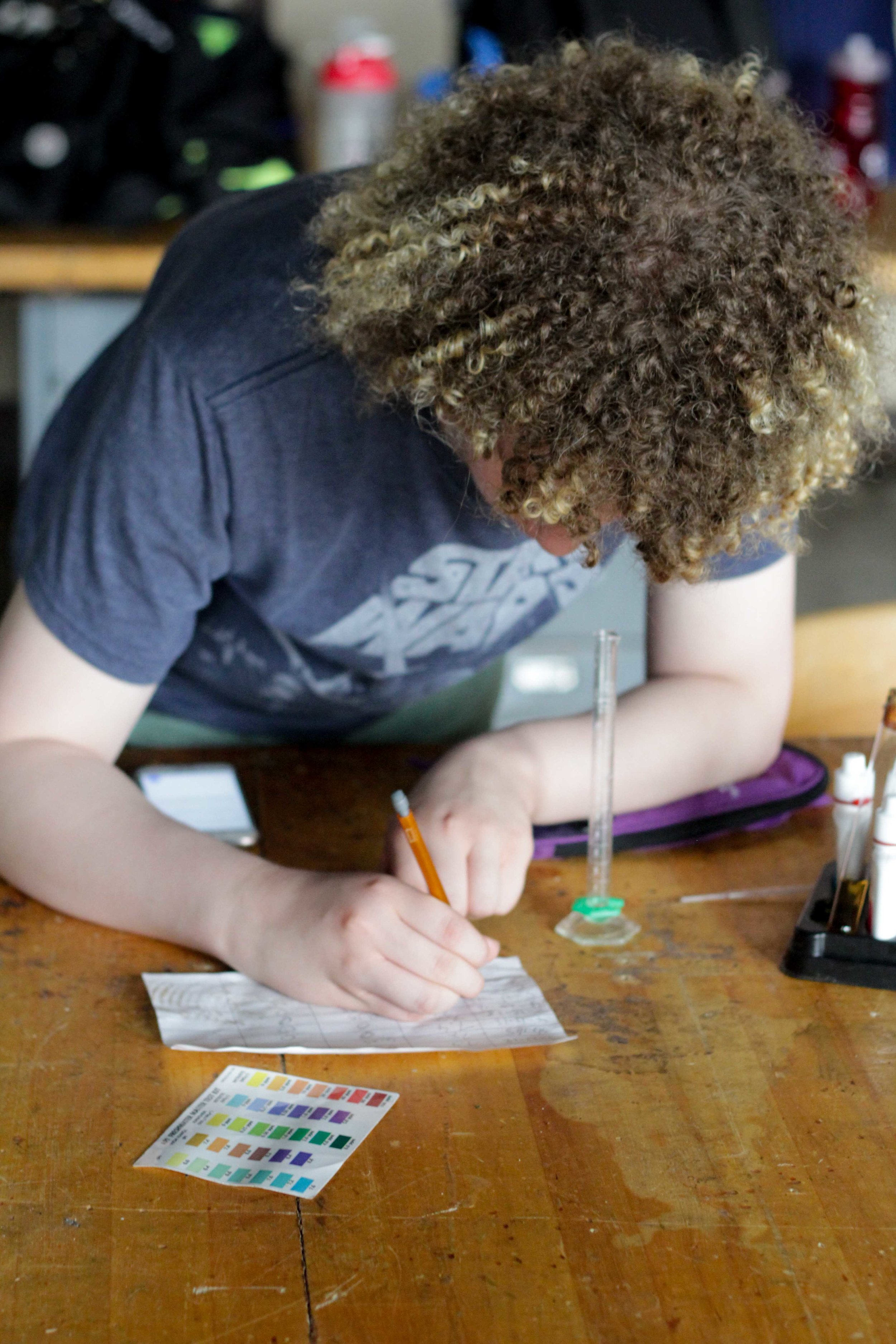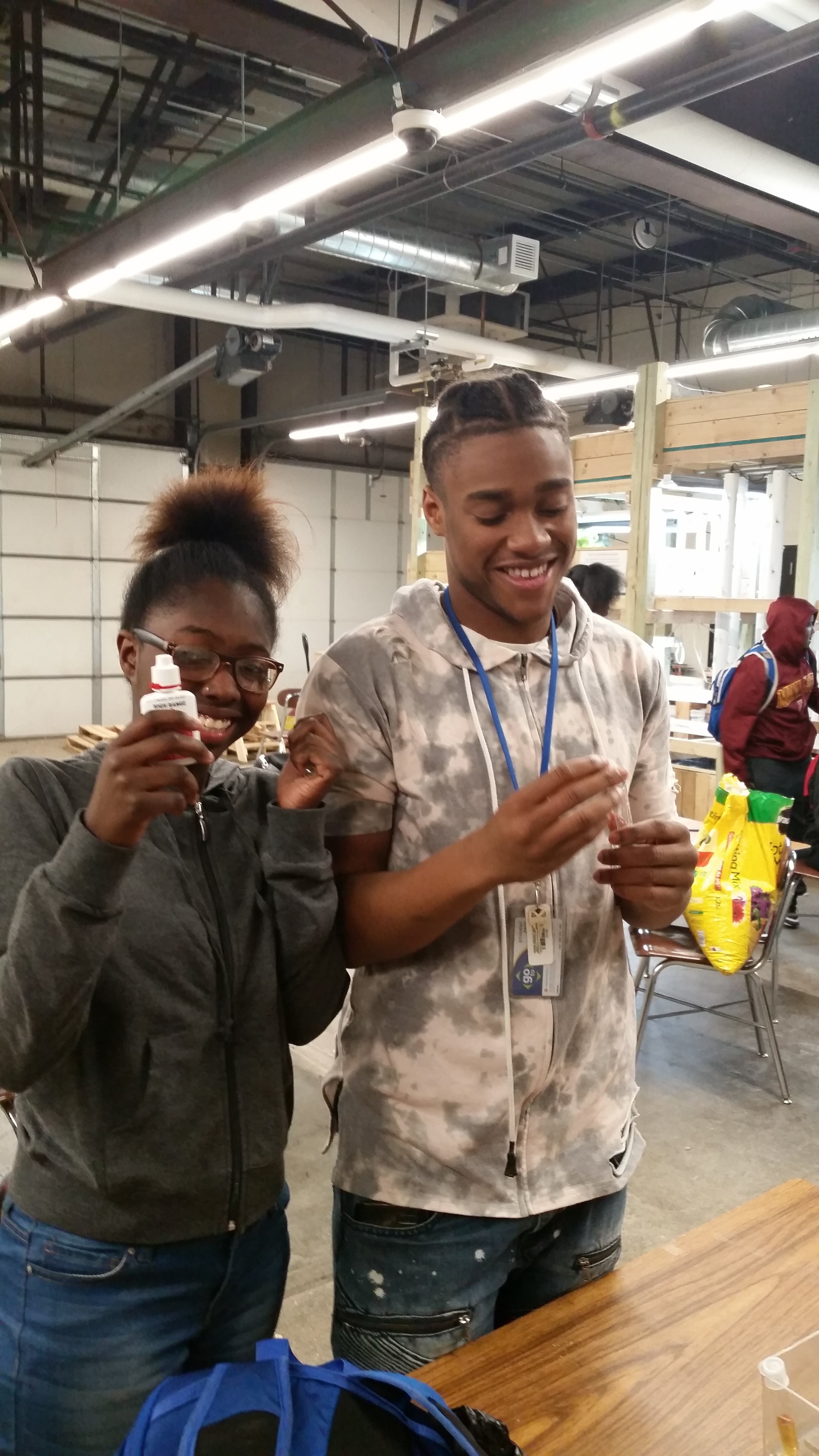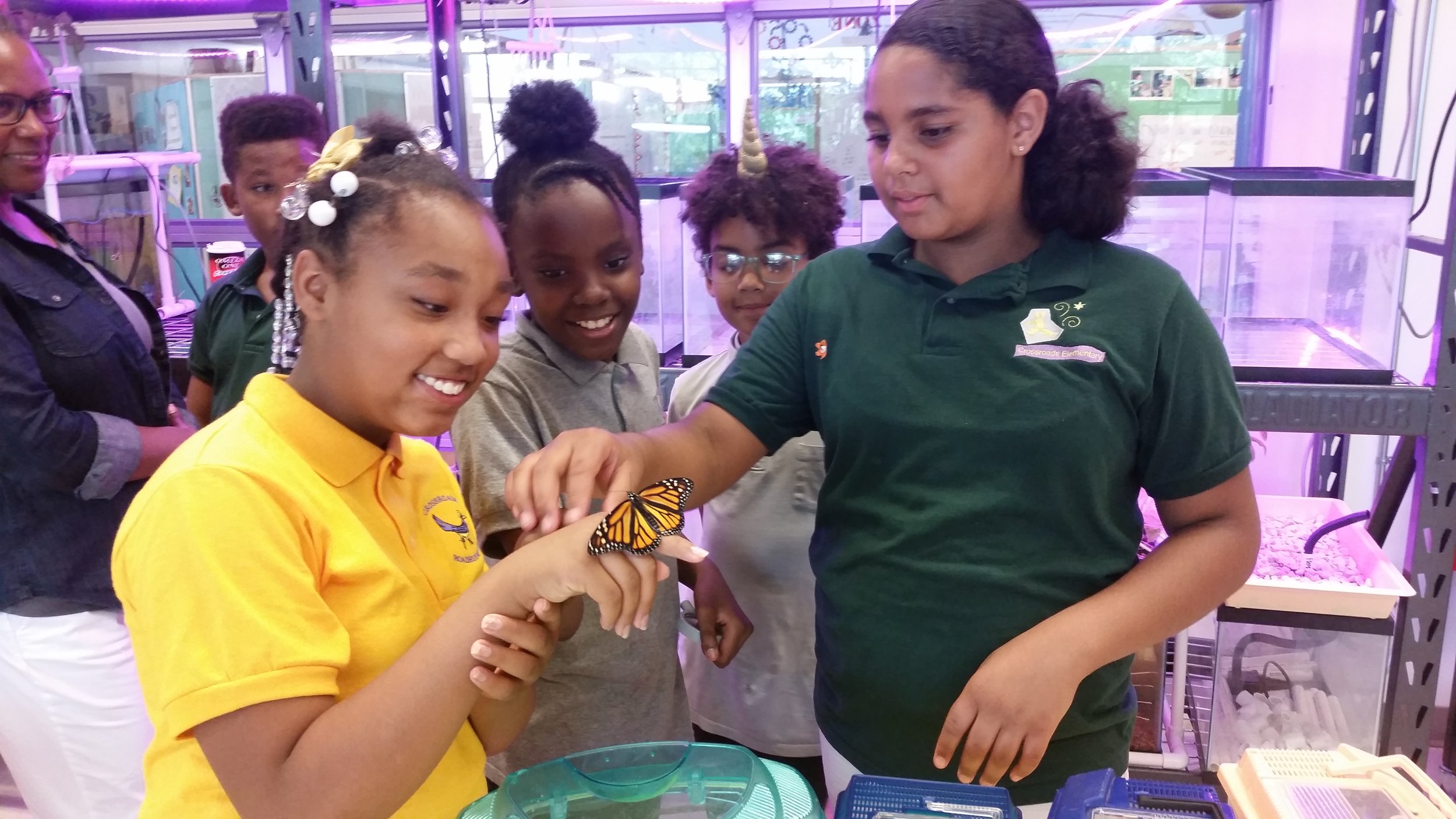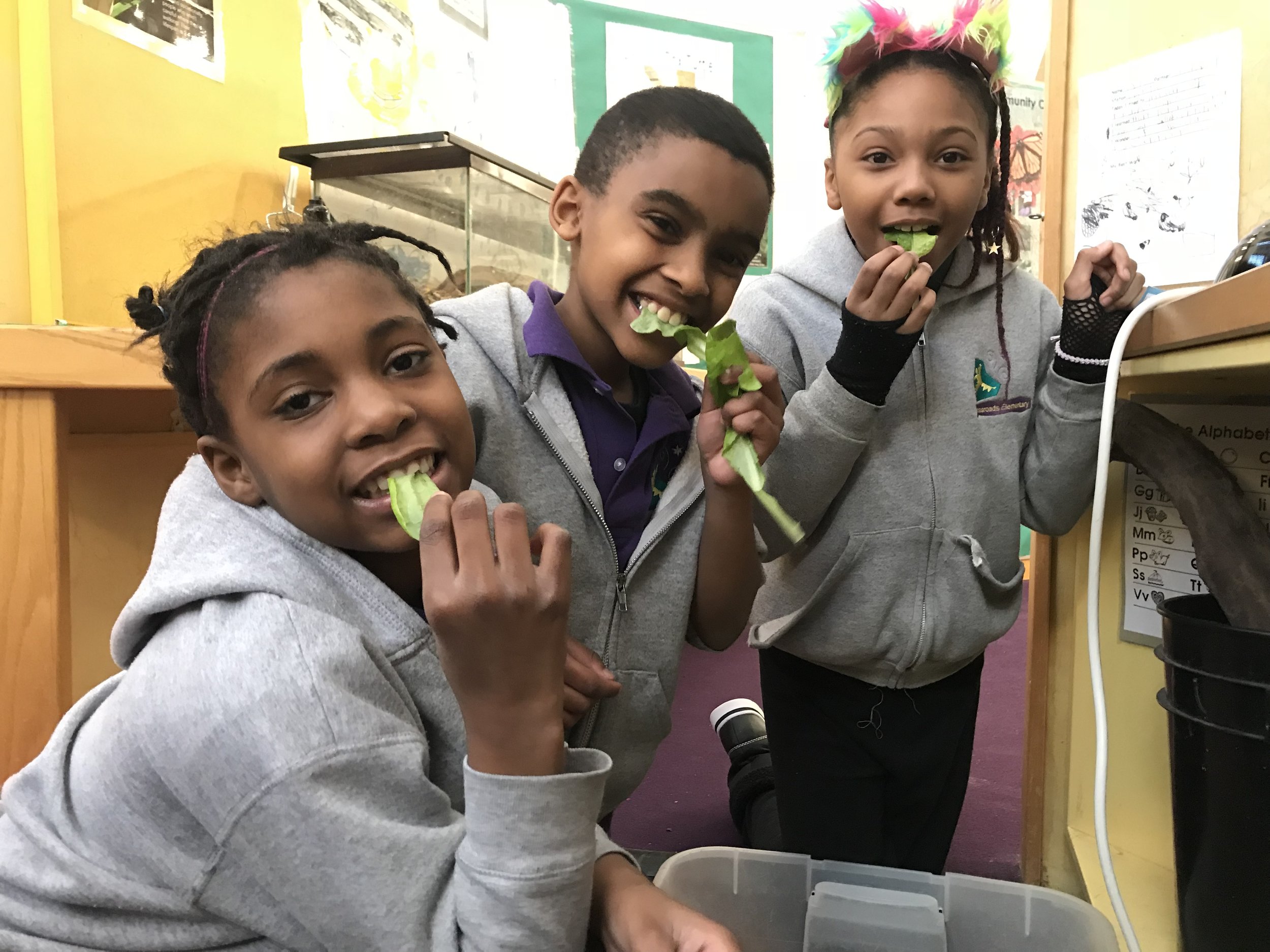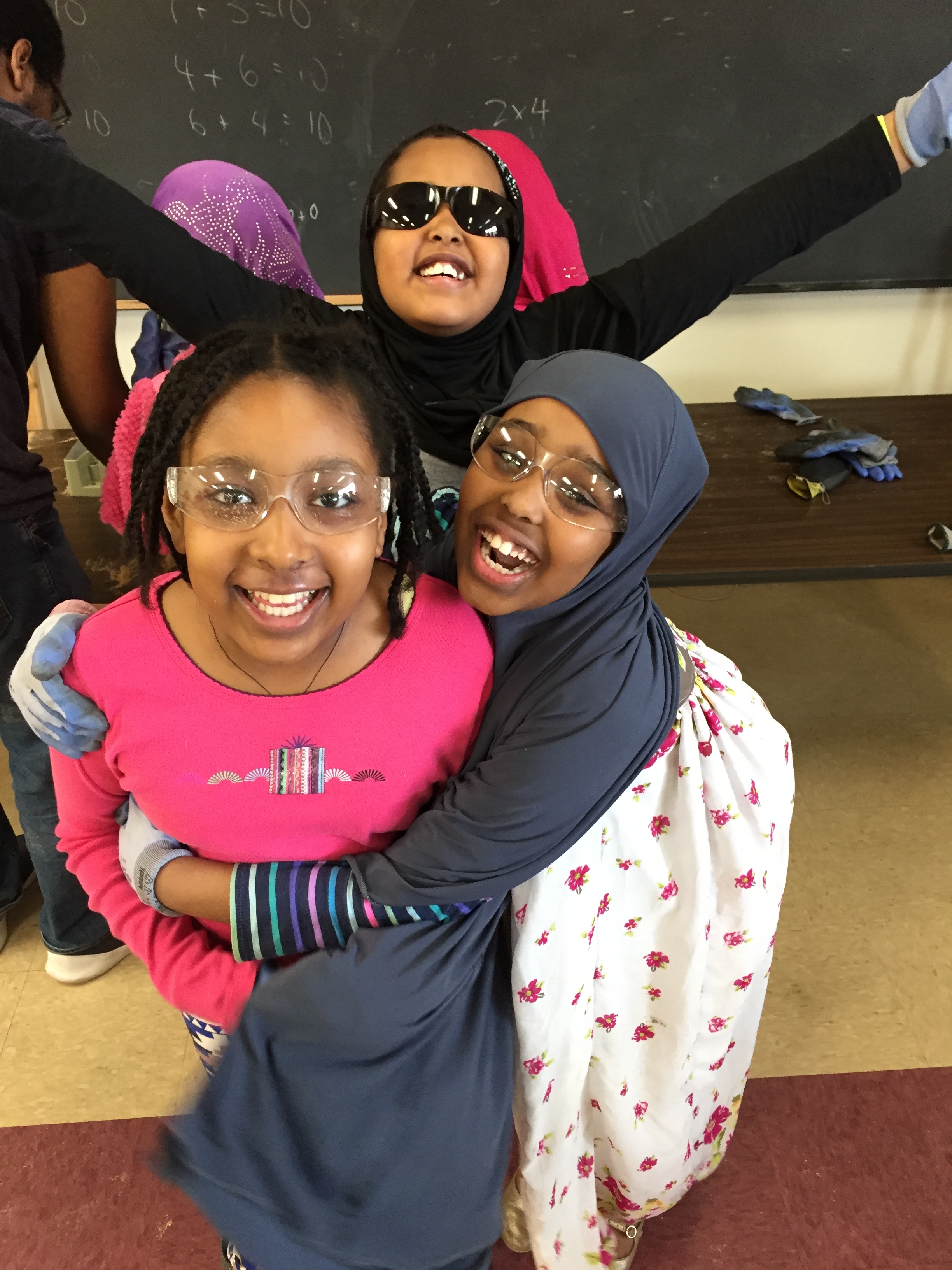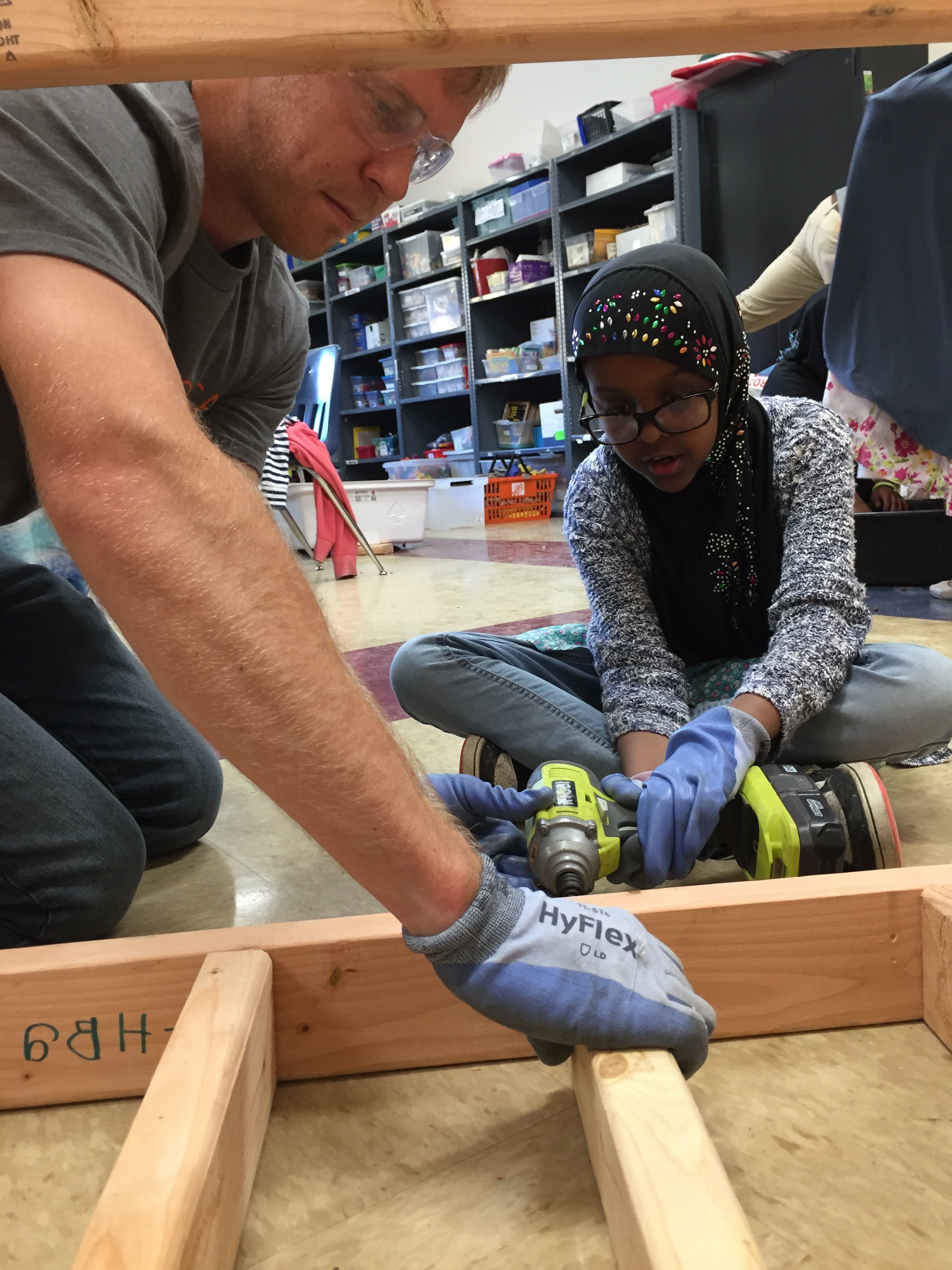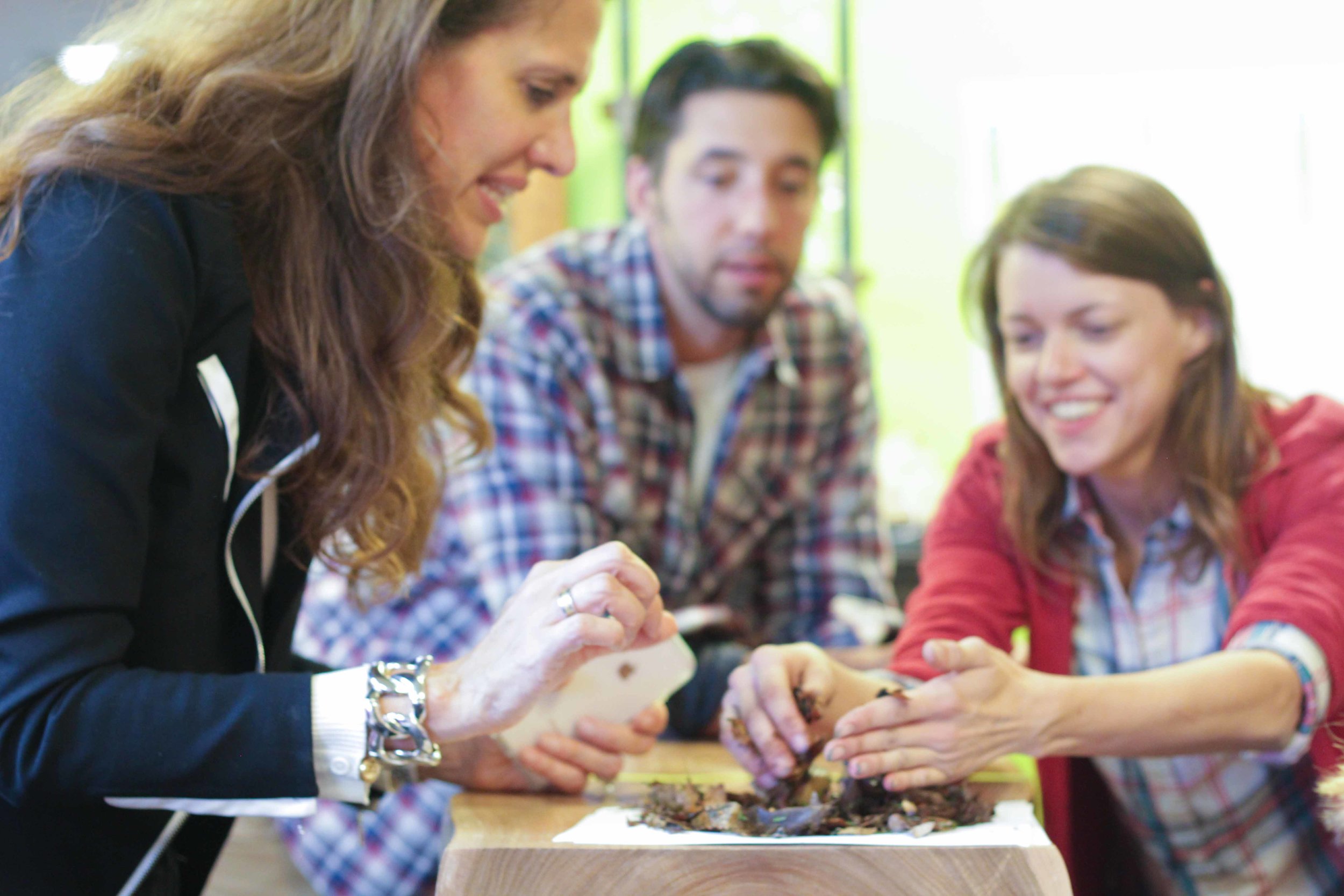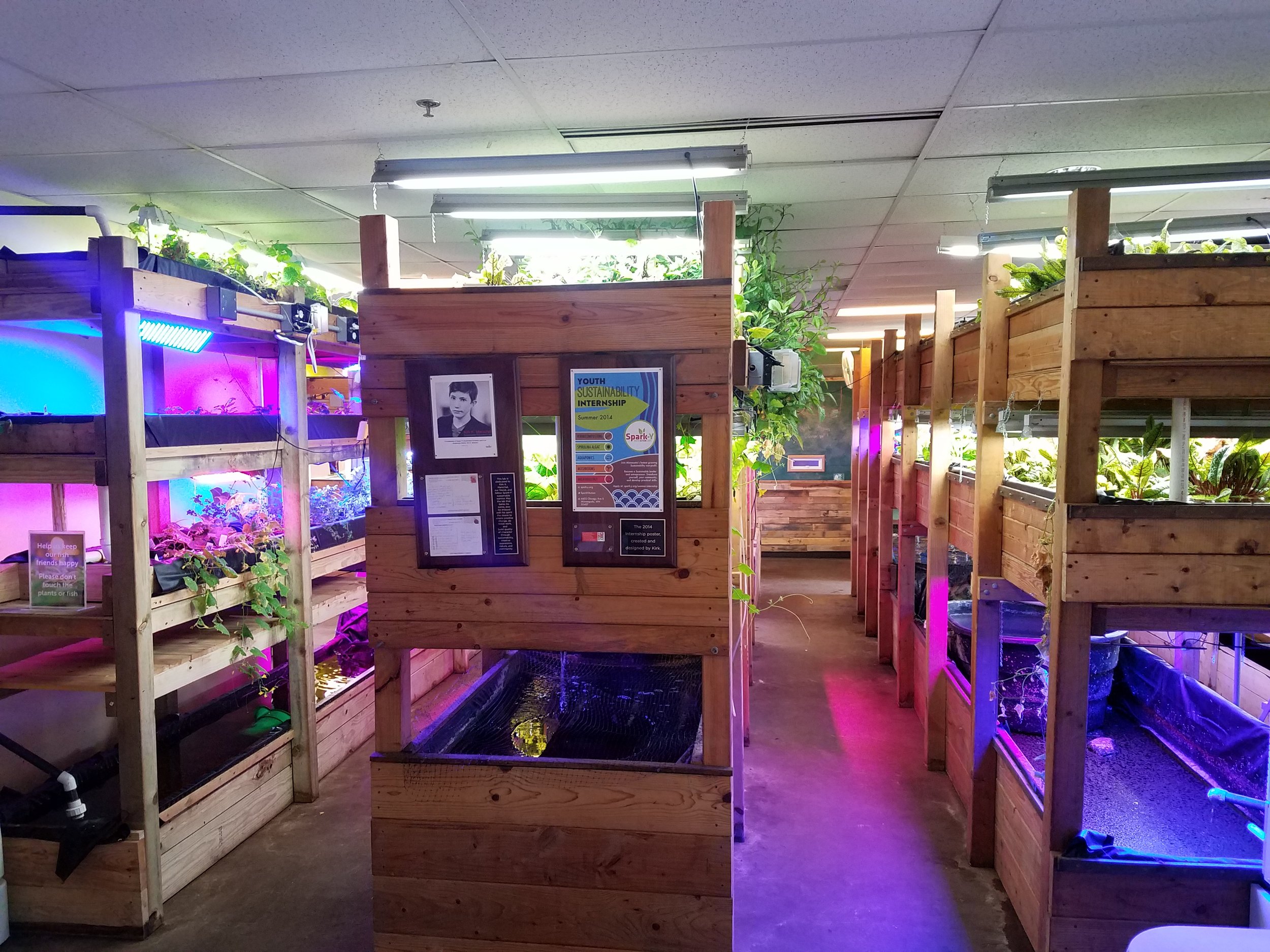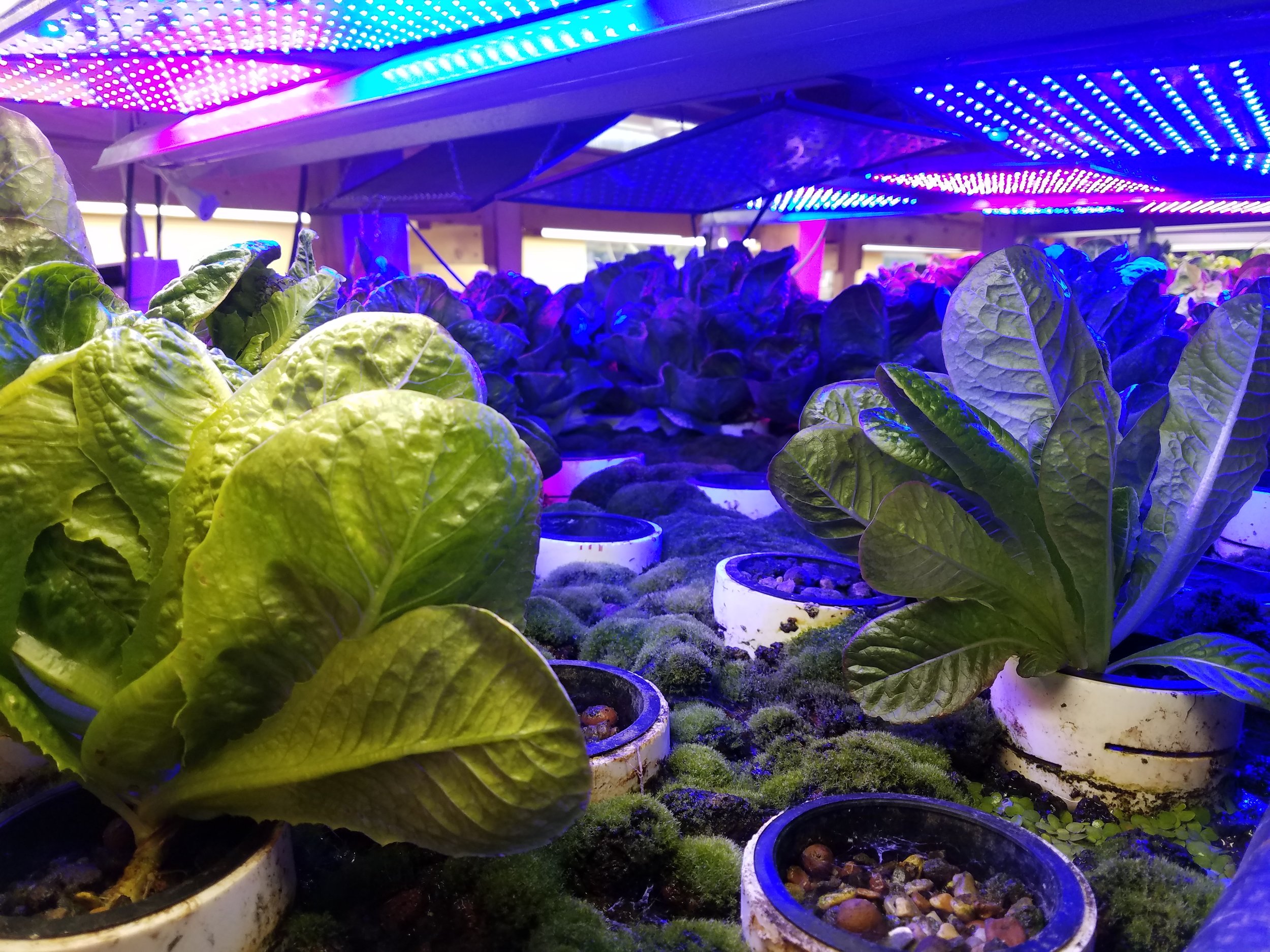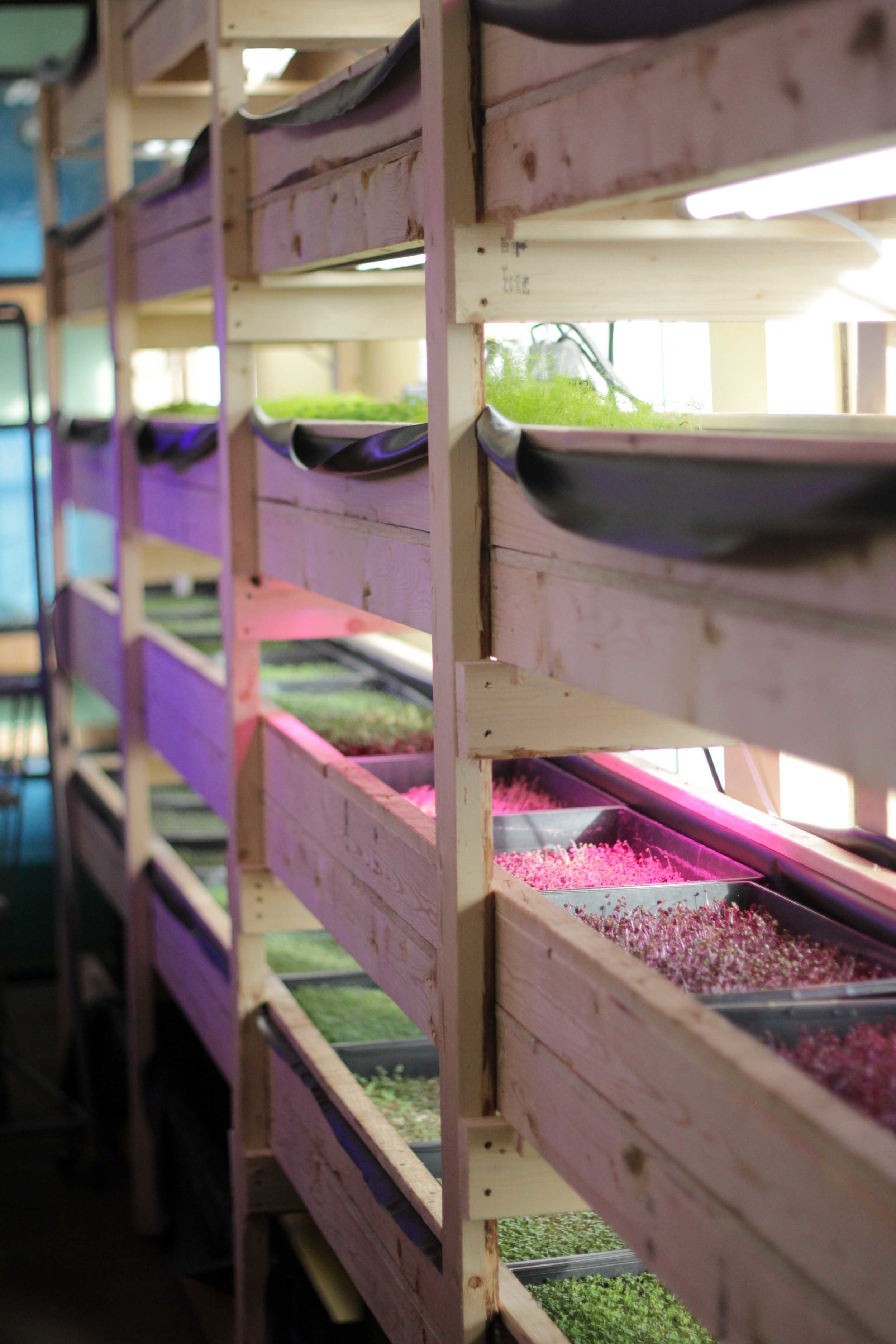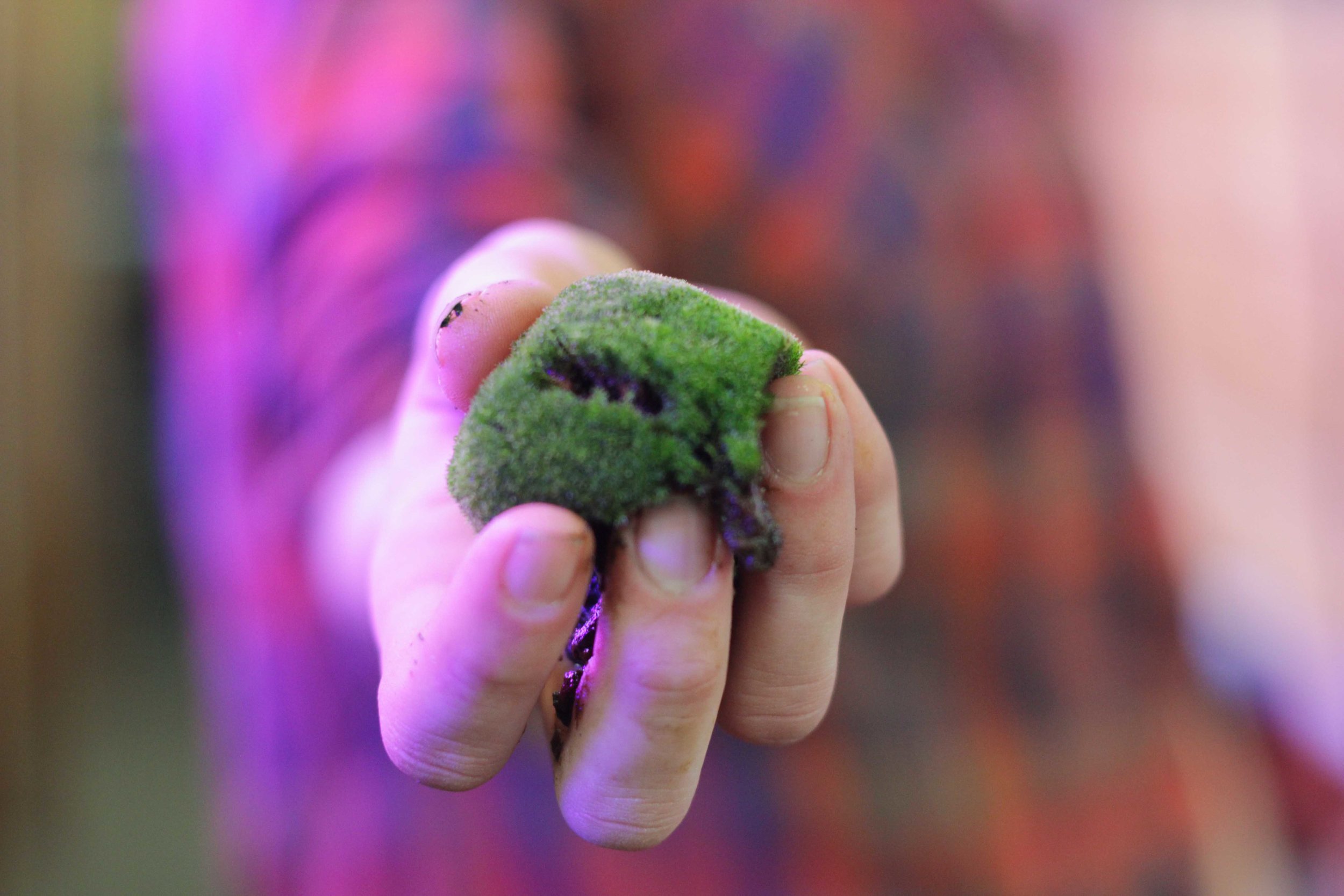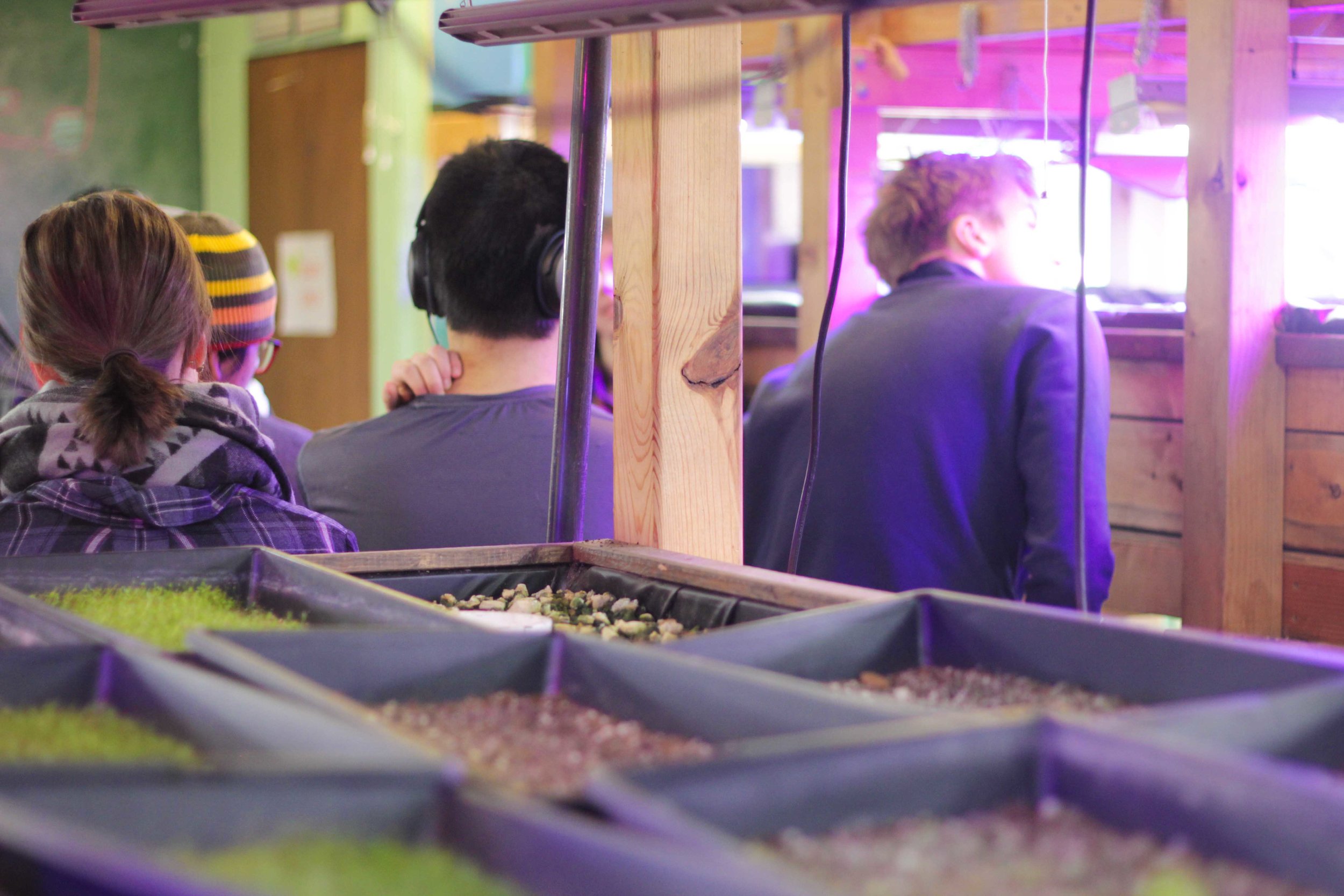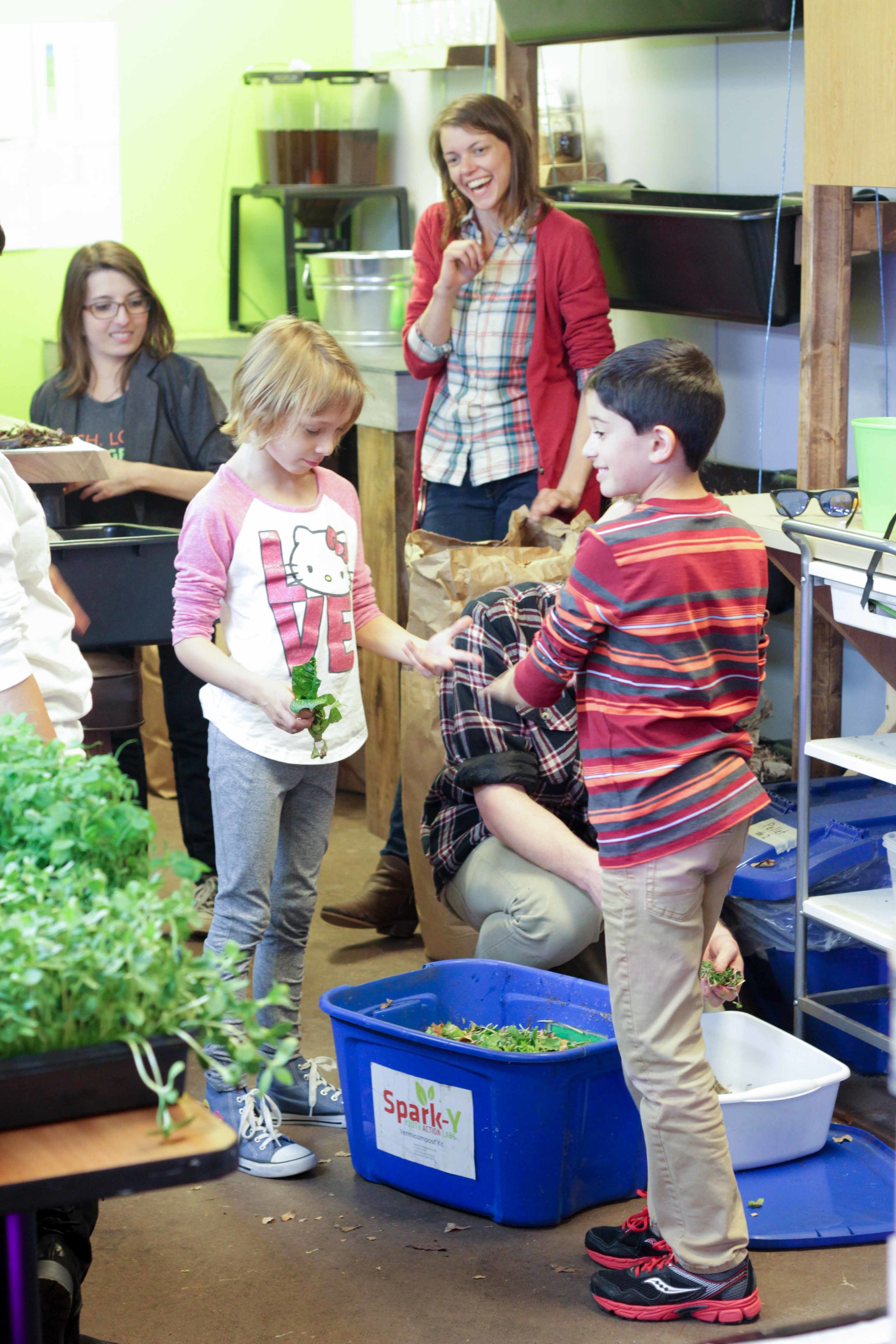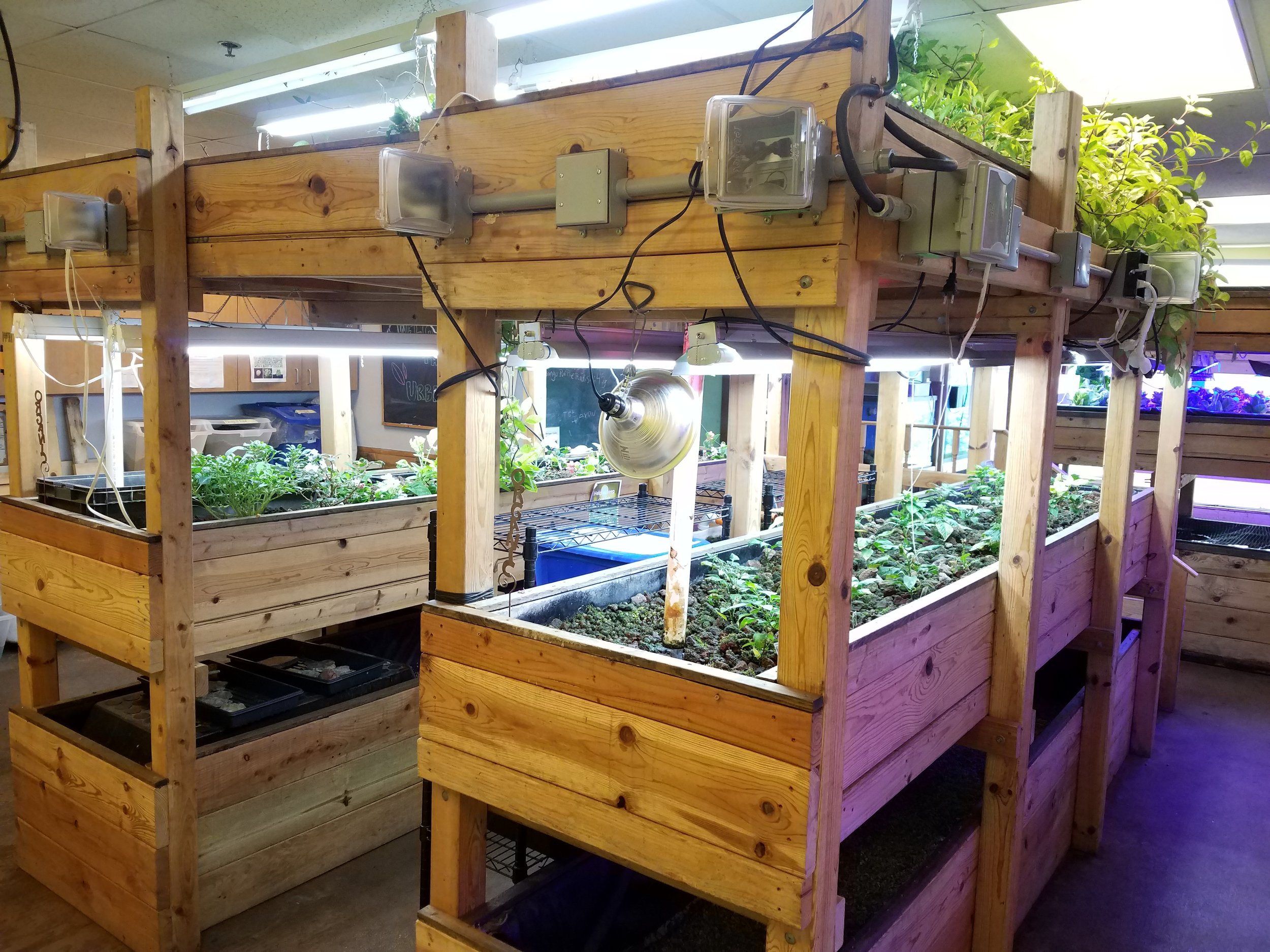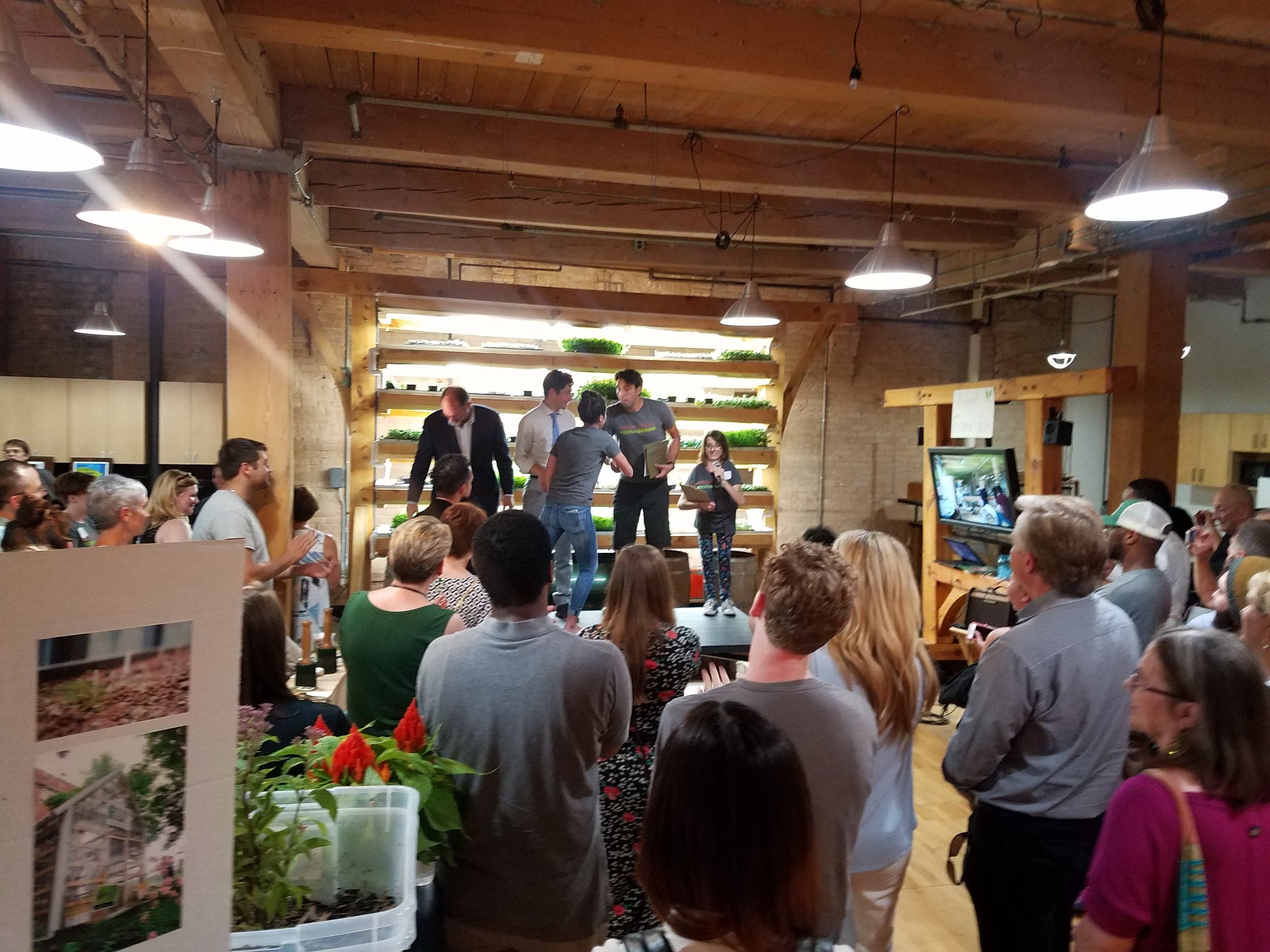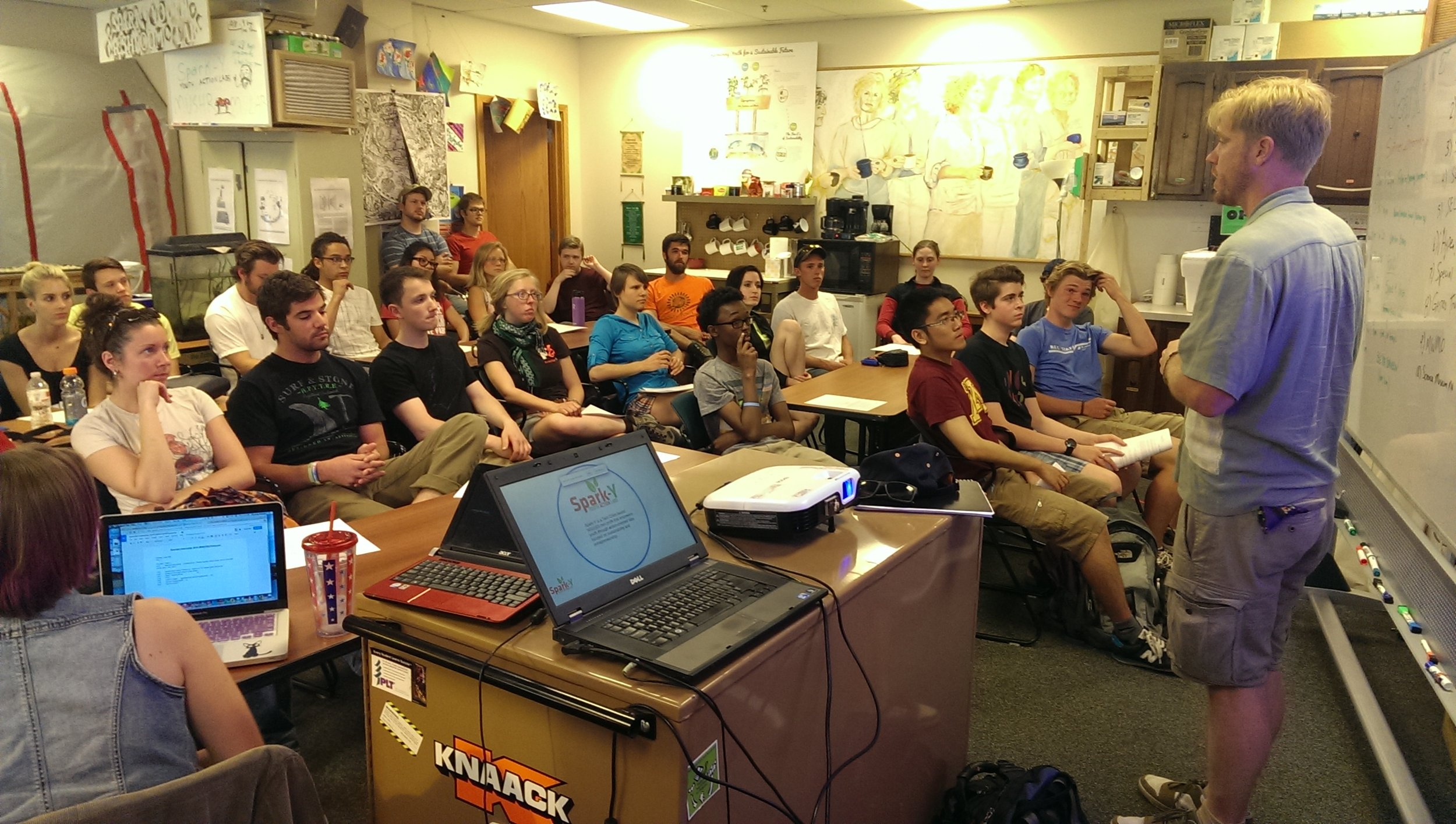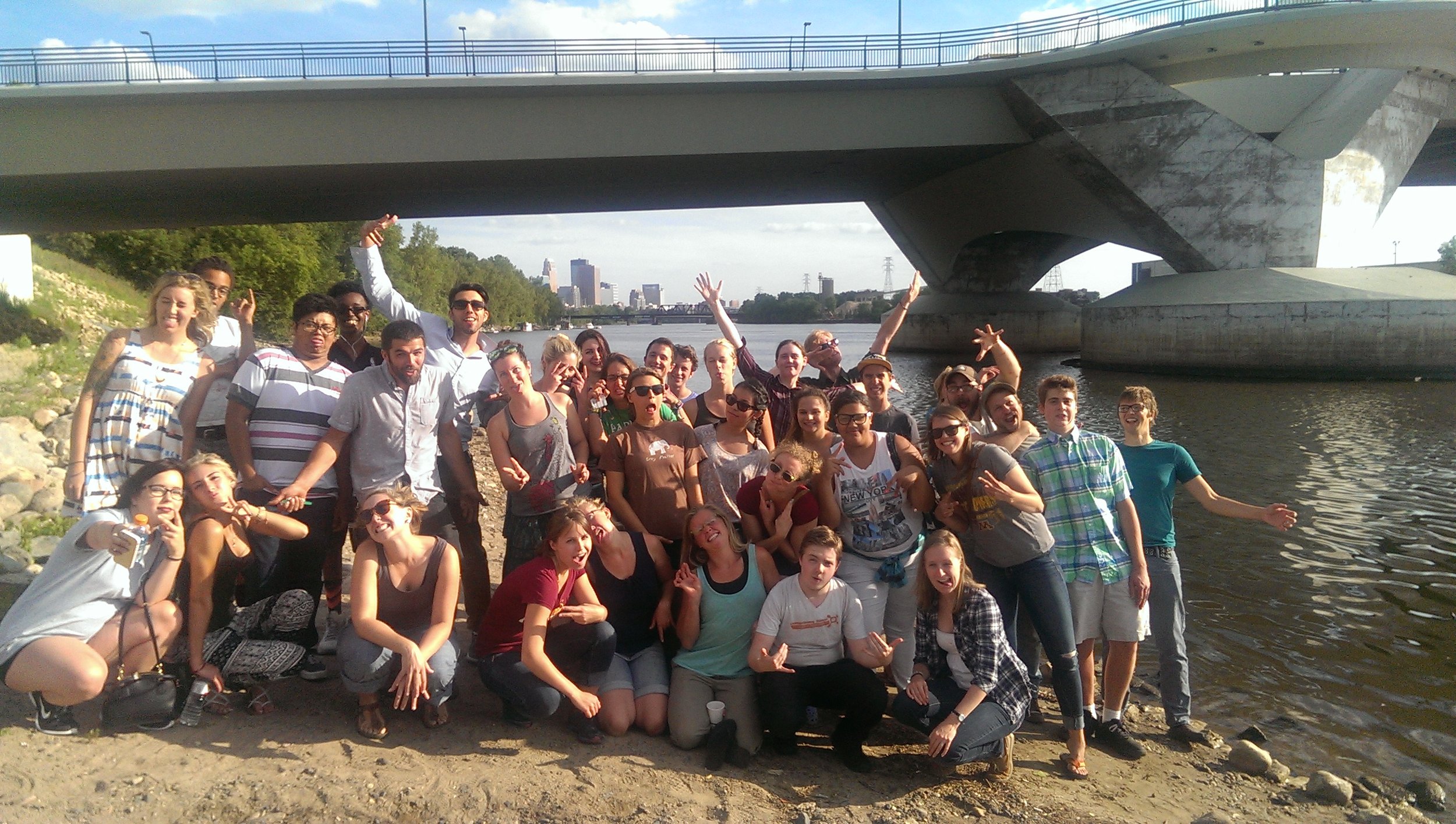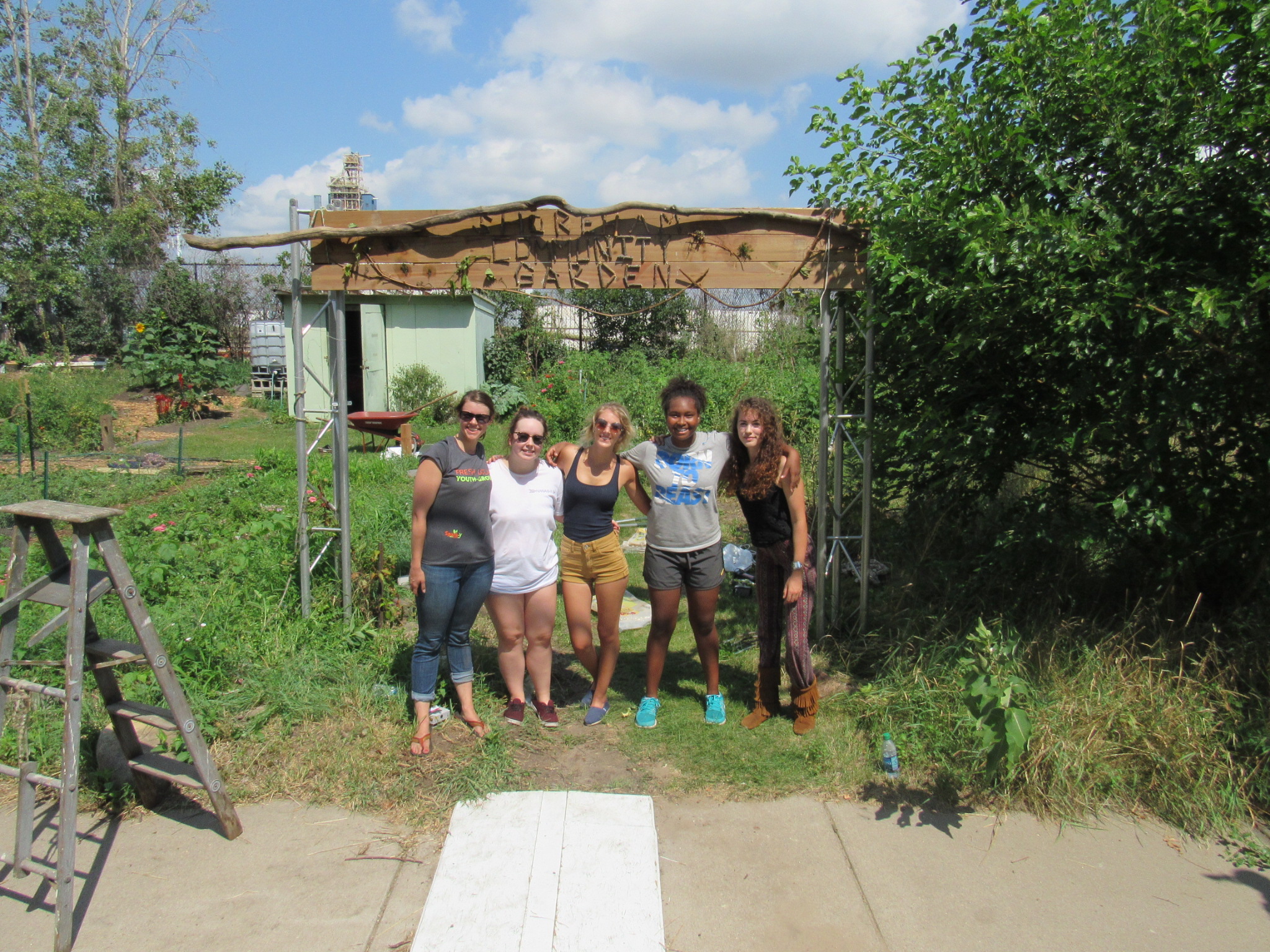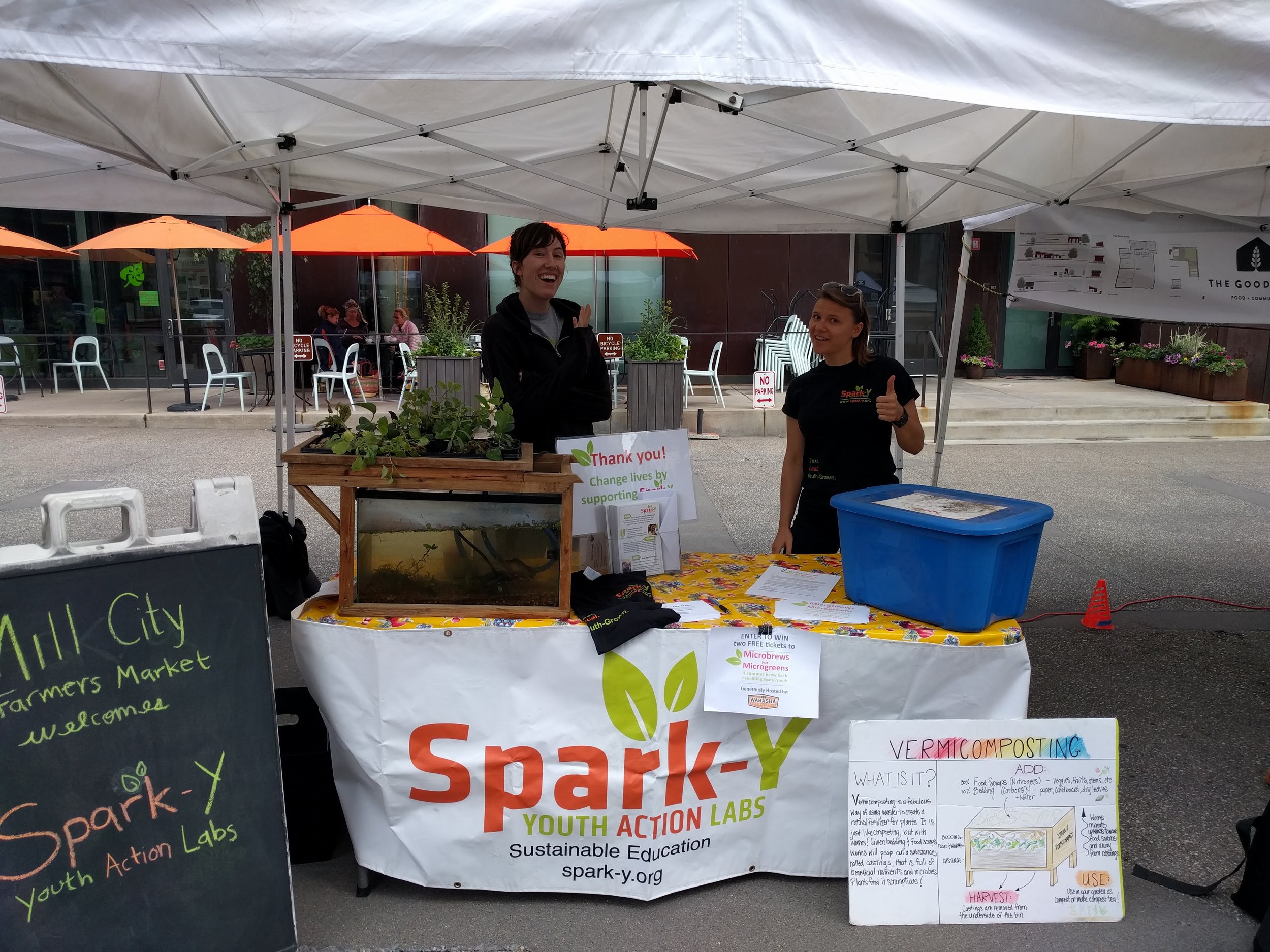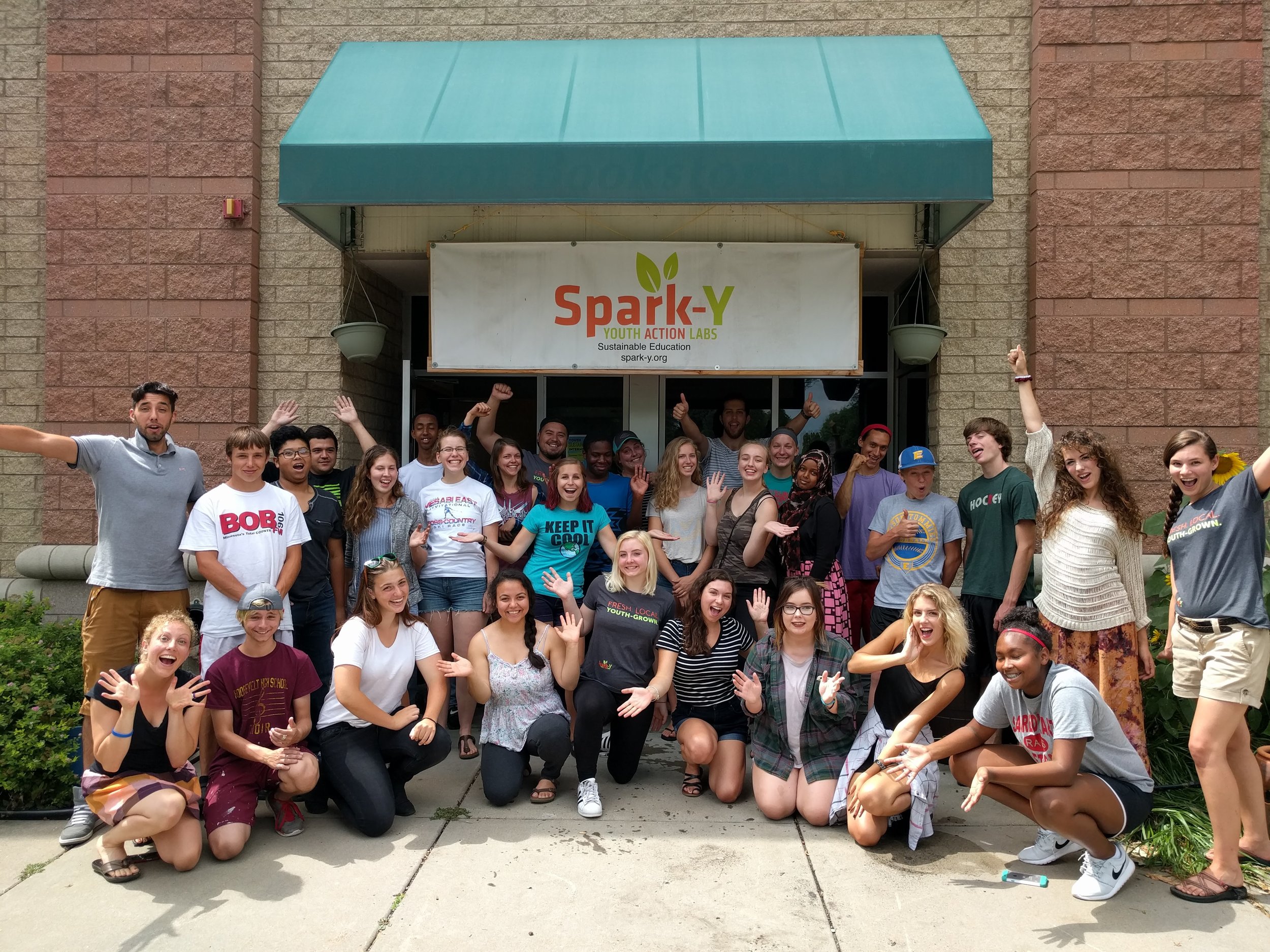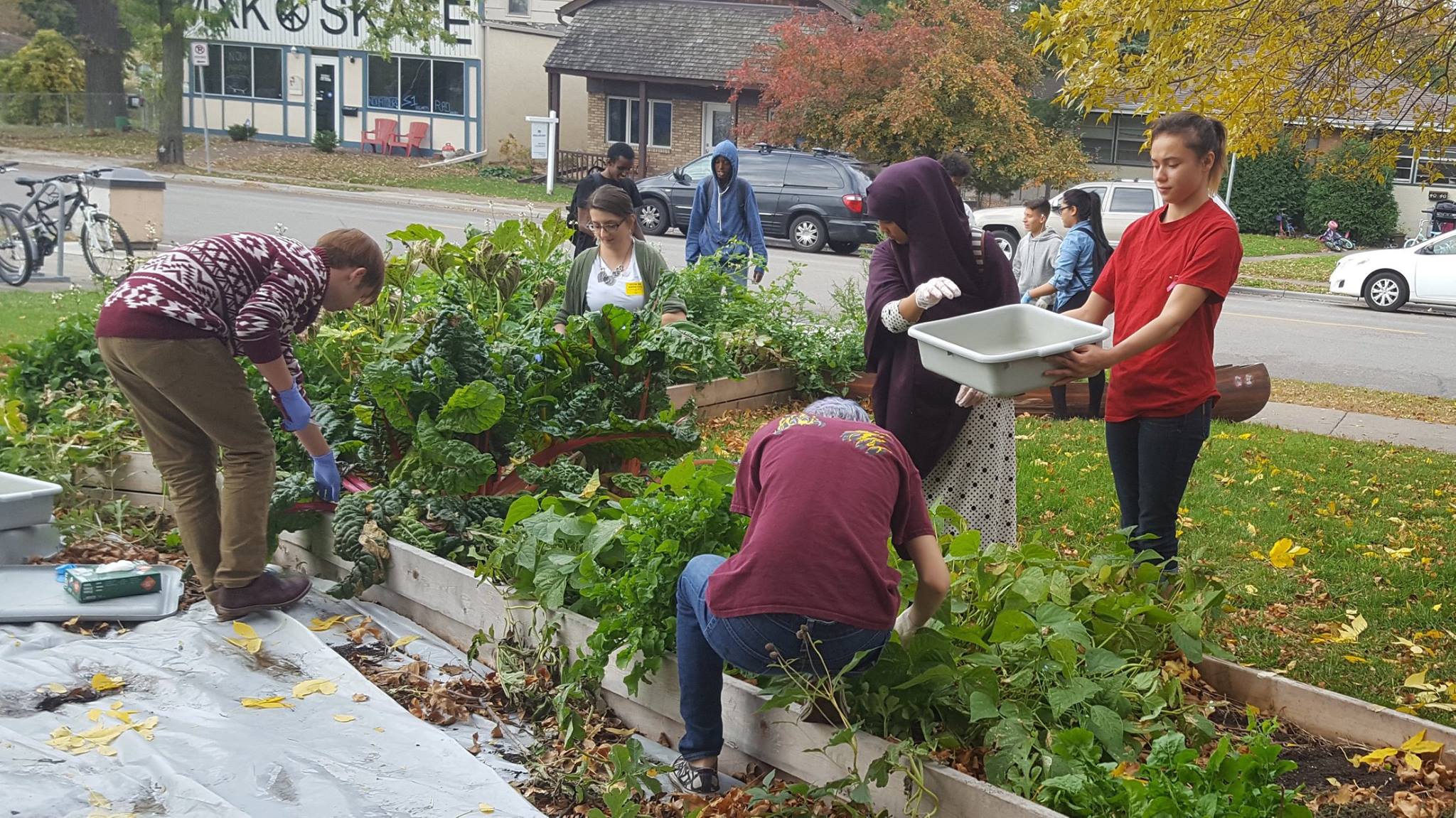The following blog post was written by Carley Rice, Lead Sustainability Educator, on our Spark-Y program partnership with Community School of Excellence
The students at Community School of Excellence are lots of things, but if they are one thing, they are truly excellent. This group of fifth grade students shocks and inspires me with their innate curiosity and deep rooted LOVE for learning. Leading them on a small portion of their education journey this year has been a true honor. As I part ways with my students for the summer I reflect on the lessons they have taught me, about education, about children, and about the future of a planet in peril.
We started off the year asking lots of questions: What is sustainability? How can we live more sustainably? How can we treat our planet better? How can we treat each other better?
I think that starting off the year with open inquiry and dialogue set us up for success. Too often young people are afraid to ask questions. Maybe adults in their life discredit their opinions. Maybe they’ve been shut down by others. Maybe they don’t feel that their thoughts are valuable.
This has to change.
Creating a culture of inquiry is one of my top priorities as an educator. How can we expect children to learn and grow if they don’t ask questions?
This year our fifth graders at CSE used power tools to build garden beds and aquaponics systems, cared for fish, grew plants, experimented with pH, and even solved engineering challenges. Throughout all of these activities they were encouraged and pushed to think critically, be creative, and ask questions. Many of these activities were new for our students and pushed them out of their comfort zones. It’s not everyday that you see a 10-year-old child successfully use a chop saw. These activities wouldn’t be possible without a group of open-minded, eager, curious young learners. Working with students like these makes my job as an educator pretty easy. CSE is a school that takes its time with students to ensure everyone feels included, heard, and important. Not all students in our city are so lucky. At Spark-Y we make it our mission and our priority to reach those students who are under-served and at-risk.
The question that is constantly on my mind as an educator is this: Why does the traditional education system fail so many young people? How can we reach these students?
I think these are questions that you could spend a lifetime considering and trying to solve. Right now, I think the answer has to do with empowerment. Too many students don’t believe in their own power. They’ve never been told that they CAN, in fact, do anything. They haven’t been given the opportunities, skill sets, and guidance to reach their potential. Their thoughts, opinions, and ideas have been ignored. Their voices have been silenced. If we can target this issue maybe we can begin to reach all students, not just the top 5-10%. I think this begins with communication. Students need to feel heard. But, before they can feel comfortable opening up and sharing they need to feel respected, safe, and trusted.
Every week at CSE students were presented with a challenge that is currently facing our world. Topics such as waste, water consumption, pollution, inequity, food deserts, and climate change were introduced and discussed. Some may think that these topics are “too big,” or “too daunting” for young minds. I disagree. I think that by trusting our youth with these ideas and challenges we are showing them that we respect them, that we need their help, and that we fully believe in their abilities. It is their generation that will turn our climate crisis around. Why wait till they are adults to present these ideas? This approach lets students know that we trust them, and that it’s okay to share their opinions. Young people just want to feel like adults actually see them, hear them, and understand them.
Our work at CSE this year was a great example of this. These 10 and 11 year old students not only were able to grasp big, complicated concepts, but they were able to articulate their thoughts and even brainstorm potential solutions. It’s amazing what children are capable of when they are in an empowering environment that cultivates curiosity, critical thinking, and inquiry.
A few weeks ago I had a student ask me why earthworms come out of the ground after a rainstorm. I told him that that’s such a great question, and then asked him to find the answer for me and report back next week. As soon as I walked into the classroom the following week he came up to me with a piece of notebook paper and presented his findings. It’s simple, small moments like this that reassure me that our approach is working. Children are innately curious. It’s up to us to keep that fire ignited and do our best to never let it burn out.
